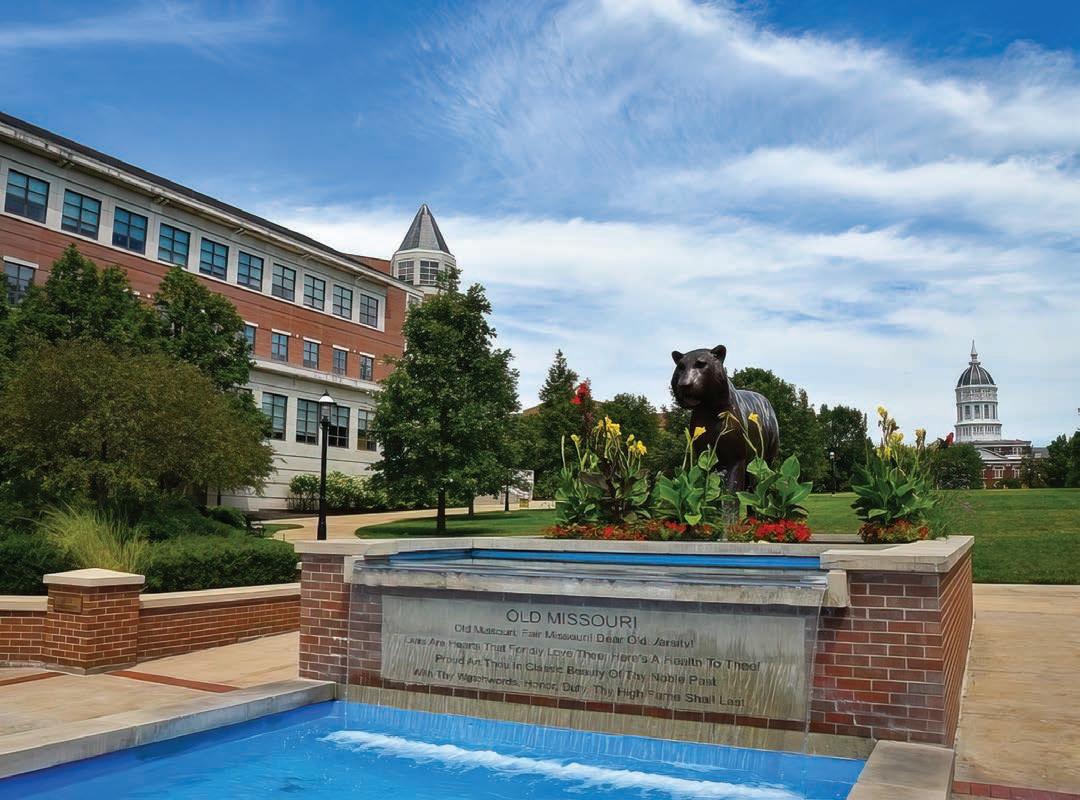CONTINUING A TRADITION OF EXCELLENCE

















Greetings from the University of Missouri! It is with a healthy mix of pride and joy that I write this message to present you with the 2022 School of Accountancy newsmagazine. I am pleased (and relieved!) to report on a whirlwind of activity and accomplishments covering the past two years, subsequent to the challenging pandemic settings that we faced in 2020 and some of 2021. While all of us are learning to live with the new “normal,” I am pleased to report that we have stayed strong and continue to flourish, with our accountancy faculty/staff/student/alumni accomplishments and contributions at the fore.
Our faculty continue their outstanding work in research, teaching, and service activities. Ranging from high quality research publications (pages 14-19) to recognitions and awards (pages 13), our faculty and staff portfolio exemplifies excellence. Our students continue to do us proud, with a variety of activities and accomplishments ranging from participation in extracurricular activities to a national #2 ranking of 521 programs nationally on the CPA Exam Success Index (Accounting Today, February 2021). Their placements are consistently high and geographically diverse, with out-ofstate placements representing a significant and increasing proportion of our placements.
Our alumni’s loyalty and support are inspirational. They give generously of their time, talent, and treasure. They have been steadfast in their support through the initial turmoil of the pandemic and beyond. They share their expertise with our students in various forums and also connect our faculty with guest speakers and research opportunities. They exemplify gratitude for the education that Mizzou provided them by supporting our students, faculty, and programs (please see pages 34-40 for a sample
of alumni contributions). This Fall (2022), we have an impressive array of named faculty positions in generous recognition and support of our faculty (see page 10). In short, our alumni have been such an integral and inspirational part of our success.
On the program/curricular side, we have a new Accounting Data Analytics certificate approved for our 150-hour accountancy program. Thus, in addition to Assurance and Taxation, students now also have an option to specialize in the Analytics area. All three areas are in high demand in our program. The addition of professional development programs and thought leadership events (e.g., Orin Ethics Symposium, Dawdy Speaker Series, Women’s Leadership Forum as shown on pages 21-23, 44-51) have also been beneficial, building valuable supplements to our students’ coursework and strengthening their connections to the accounting profession and the business world at large. The recognition of our program by the Institute of Management Accountants (IMA) for its Higher Education Endorsement program and the Institute of Internal Auditors for its partnership program are examples of the external affirmations of our accountancy program at Mizzou. The active presence and growth of recruiters on campus serve to highlight the value attached to our program, faculty/staff, and students.
I am forever grateful for the support of our alumni, friends, corporate partners, and supporters toward the continual advancement of the Mizzou School of Accountancy. Thank you!

Vairam Arunachalam (PhD, Illinois ’91) is PricewaterhouseCoopers / Joseph A. Silvoso Distinguished Professor & Director of the School of Accountancy at Mizzou. His teaching interests are in the areas of Fraud Examination and Forensic Accounting. His two co-edited books titled The Financial Landscape of Emerging Economies and Critical Perspectives on Emerging Economies were recently published by Springer Publishing. Professor Arunachalam currently serves as a Trustee of the Institute of Management Accountants (IMA) Research Foundation, member of the Missouri Society of CPAs (MOCPA) Education Foundation, and member of the Accountancy Board of Advisors for the Gies College of Business at the University of Illinois at UrbanaChampaign. He has been actively involved with AACSB accreditation, having chaired several AACSB accounting accreditation teams in recent years, with two more forthcoming next year. He has also been actively involved in organizing alumni and leadership visits, guest speakers, and forums such as Orin Ethics Symposium (featuring Fannie Mae CEO Tim Mayopoulos in 2021 and Theranos whistleblower Tyler Schultz forthcoming in 2022) and Dawdy Speaker Series. He is actively involved in fundraising and alumni relations for the School of Accountancy. Professor Arunachalam continues his service on the Trulaske College of Business Executive Committee and is currently serving on the Trulaske College of Business Dean Search Committee. In his free time, he can be seen walking across the Mizzou campus with his dog, DaVinci, who aspires to be an assistant to campus mascot, Truman the Tiger, someday.
Leah Baer (PhD, University of Colorado Boulder ’18) is an assistant professor and the Armanino Faculty Scholar in the School of Accountancy. She teaches Accounting Information Systems to students newly admitted to the accountancy program. Her primary research interests focus on corporate governance, in particular how incentives of executives and directors influence their behavior. Leah is an active member of the American Accounting Association and has served as a reviewer for several academic journals. She maintains her CPA license in the state of Colorado.
Elise Bartley (MAcc, University of Missouri ’08), Assistant Teaching Professor and FORVIS Teaching Scholar, currently teaches Intermediate Financial Accounting, Advanced Accounting, Fraud Examination, and Accounting Ethics at Mizzou. She advises the Mizzou Student Center for the Public Trust and the Alumni Mentor Program student organizations. Previously, Elise served as the President of the Missouri Association of Accounting Educators. She is currently a member of the American Accounting Association, the Missouri Society of Certified Public Accountants, and the Missouri Association of Accounting Educators, as well as is active in various community organizations including The Crossing Church. She is also a licensed CPA in the state of Missouri. Before beginning her teaching career, Elise worked for Ernst & Young as an auditor out of the Kansas City office.
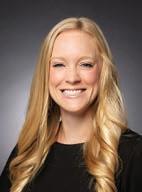
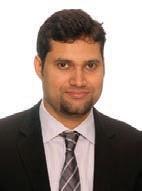
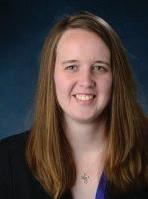
Mahfuz Chy (PhD, University of Toronto ’18) is an assistant professor and the Deloitte Faculty Scholar. He completed a MS in Statistics from Virginia Tech and a MS in Mathematical Finance from UNCCharlotte. Previously, he worked as a statistician in Raleigh, North Carolina. His research interests broadly span financial and auditing archival topics. Some specific areas of his current research focus on real effects of accounting/auditing, managerial short-termism, debt contracting, and unintended consequences of accounting/auditing regulations.
Keith Czerney (PhD, University of Illinois ’15; MAPC, Villanova University ’06; BBA, University of Michigan ’05) is an assistant professor and the PricewaterhouseCoopers Faculty Scholar. He teaches the introductory auditing course. Keith maintains an active research agenda that principally focuses on current issues in auditing and disclosure. His research has been published in The Accounting Review, Contemporary Accounting Research, and AUDITING: A Journal of Practice and Theory. Beyond research and teaching, Keith serves as a review board member for The International Journal of Accounting and as an ad-hoc reviewer for several academic accounting journals and American Accounting Association (AAA)
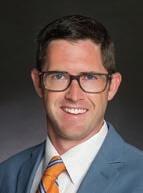
meetings. In the past year, Keith has also joined Mizzou’s Intercollegiate Athletics Committee as a faculty representative, served on the AAA Auditing Section Notable Contribution Award Committee, and supervised a PhD student’s summer research project. Prior to joining the faculty at the University of Missouri, Keith spent three years as an assistant professor in the School of Accountancy at the University of NebraskaLincoln, where he taught graduate courses on financial accounting theory and financial statement analysis, and five years as an external auditor in public accounting.
Will Demeré (PhD, Michigan State ’17) is an assistant professor and the RubinBrown Faculty Scholar. His research focuses on performance measurement and management, feedback, and corporate governance. His research has been published in Management Accounting Research, Management Science, and the Harvard Business Review. Will also previously worked as an external auditor for Deloitte and taught at Virginia Tech. During his time at Virginia Tech and Michigan State, Will taught courses in managerial accounting, financial accounting, and information systems. He also worked with study abroad programs, teaching in France, Germany, and Belize. He currently teaches advanced auditing and data analytics in the School of Accountancy.
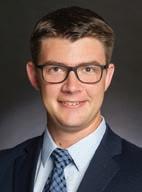
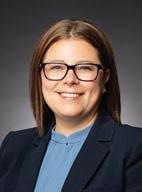
Kari Gingrich, CPA (MAcc, University of Iowa ’08), Assistant Teaching Professor, began her career in higher education teaching introductory accounting and economics courses at the University of Iowa. Kari worked as an auditor for KPMG in Chicago and Des Moines before relocating to Columbia to pursue a career teaching. She began teaching the Introduction to Federal Income Taxation course at MU, as well as Introduction to Accounting, Financial Accounting Concepts, Cost Accounting, and Governmental Accounting. In August of 2017, Kari joined the faculty full-time and is responsible for the second introductory accounting course, Managerial Accounting. She enjoys the opportunity to work with a large number of students from the Trulaske College of Business as they make their future career choices. Her research interests include examination of tax policies and how they impact education funding. Kari is a licensed CPA in the state of Missouri and
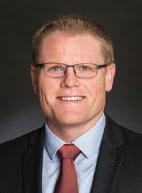
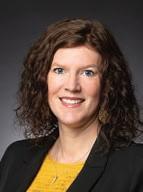
serves as Board Treasurer for The Language Tree, a non-profit language immersion school in Columbia.
Matt Glendening (PhD, University of Iowa ’12), associate professor and Andersen Alumni/Joseph A. Silvoso Distinguished Professor, teaches intermediate financial accounting and international accounting. Professor Glendening’s research focuses on financial reporting and corporate governance, and his work has been published in The Accounting Review, Journal of International Business Studies, Auditing: A Journal of Practice and Theory, and Accounting Horizons. He is an active member of the American Accounting Association (AAA).
Kristen Hockman CPA (MAcc, University of Missouri ’00), is an Associate Teaching Professor and the Nikolai Teaching Scholar. She currently teaches Computer-Based Data Systems, Accounting Information Systems, Governmental and Nonprofit Accounting, and Advanced Audit. She continues to serve as the Course Coordinator for the Computer-Based Data Systems course, which typically offers 16-22 sections per semester. Professor Hockman is also the Campus Coordinator for the Becker CPA Review course. In this role, she informs students about the CPA Exam, assists students with the CPA Exam application process, schedules the review classes, serves as instructor for an online section of the review course for Mizzou students each semester, and provides students with support and guidance as they prepare for the CPA Exam. She serves as the Faculty Advisor for Mizzou’s Beta Alpha Psi accounting fraternity. She also serves as the Faculty Advisor for Mizzou’s Alpha Phi Omega service fraternity, an organization that fosters leadership, friendship, and service on campus and throughout the community. Professor Hockman is a member of the American Accounting Association, the Missouri Society of Certified Public Accountants, the Government Finance Officers Association, and the Association of Government Accountants. She serves on the United Way Heart of Missouri Finance Committee, the MOCPA Diversity and Inclusion Committee, and the MOCPA Educational Foundation Advisory Committee. She enjoys fostering relationships with students, faculty and staff at Mizzou and other universities, alumni, and accounting professionals. Kristen and her husband, Jade,
have three children and own two martial arts schools in Columbia. She loves reading, working out, and spending time with her family and friends.
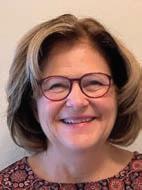
Inder Khurana (PhD, Arizona State University ’89) is the Geraldine Trulaske Chair of Accountancy. He is very excited to be back in the classroom, teaching doctoral seminars and the capstone course in which he introduced a new module on leverage buyouts. During the past year, he published three coauthored papers: PCAOB Inspections and the Differential Audit Quality Effect for Big 4 and Non-Big 4 U.S. in Contemporary Accounting Research, Internal Control Material Weakness and CEO Recruitment in Journal of Business, Finance & Accounting, and Bank Audit Regulations and Reporting Quality in Journal of International Accounting Research European Accounting Review awarded him an Excellence in Reviewing Recognition, a distinction given to those reviewers who produce high quality reports for the journal in a timely manner. Professor Khurana is working on several research projects examining the interactions between transparent information and rank-and-file employees.
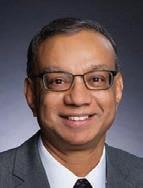

Hoyoun Kyung (PhD, University of Texas at Dallas ’18) is an assistant professor and the Accountancy Alumni Faculty Scholar. He teaches intermediate financial accounting to junior and senior students in the School of Accountancy. His primary research examines the informational effects of regulatory intervention and market transparency in the context of corporate disclosure and bank monitoring. His work has been published in the Journal of Business Finance & Accounting and featured in Harvard Law School Forum on Corporate Governance, Columbia Law School’s Blog of Corporation and the Capital Markets, and Oxford Business Law Blog. He is active in the American Accounting Association (AAA) and Financial Accounting and Reporting Section (FARS) presenting his papers and serving as a reviewer and discussant at annual and midyear meetings. He received FARS Excellence in Reviewing Award in 2019. He completed BBA from Korea University and MA in Economics from New York University
Elaine Mauldin (PhD, Nebraska ’97), is the BKD Distinguished Professor. She teaches a doctoral seminar on research methods and a graduate course using data analytic tools in the audit of internal controls. Professor Mauldin also conducts research in auditing and corporate governance. For example, this year her project examining how CFO experience on outside boards increases strategic investment, capital management and overall performance at their home firm was published in the Journal of Business Finance and Accounting. She is also working on a number of earlier stage projects and has presented her work at several invited workshops for other Universities. She has published papers in leading accounting journals such as The Accounting Review, Journal of Accounting & Economics, Contemporary Accounting Research, Auditing: A Journal of Practice & Theory, Journal of Information Systems, and Accounting Organizations & Society. She is also serving the profession as the President of the American Accounting Association. In addition to serving as a reviewer for various journals, Professor Mauldin is completing her six-year role as an editor for The Accounting Review.
Stevie Neuman (PhD, Texas A&M University ’14) is an associate professor and the Brown Smith Wallace Faculty Scholar. During the 2020-2021 academic year, she taught the introductory taxation course, but she will be transitioning into the taxes and business strategy course and a doctoral seminar during the upcoming academic year. Her primary research examines firms’ tax planning decisions and how those decisions affect firms’ information environments (primarily through financial reporting and internal control quality) and investors’ assessments of firm value. Specifically, Professor Neuman is interested in the volatility of firms’ effective tax rates and tax risk and the quality of firms’ financial statements and information environments, especially the effects of tax services provided by audit firms and taxrelated reporting decisions. She has published her research in Contemporary Accounting Research and The Journal of the American Taxation Association. Professor Neuman is an active member of the American Accounting Association (AAA) and the American Taxation Association (ATA). During the 2020-2021 academic year, she served on the editorial board for The Journal of the American Taxation Association and the JATA Conference
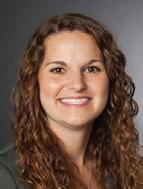
Committee. She also reviewed submissions for the FARS mid-year meeting and the ATA mid-year meeting and served as a discussant for the ATA mid-year meeting. She also serves as an ad hoc reviewer for The Accounting Review, Contemporary Accounting Research, Accounting Horizons, Review of Accounting Studies, and the Journal of Accounting, Auditing, and Finance. Professor Neuman enjoys interacting with the students, faculty, and staff at Mizzou, as well as the alumni and accounting professionals that invest in the program.
Chris Prestigiacomo (PhD, University of Missouri ’95), Associate Teaching Professor, Vairam Arunachalam Distinguished Teaching Professor. He serves as the coordinator of the School’s (and College’s) AACSB maintenance of accreditation efforts. He has taught the first and second principles courses (2036/2037), intro (2010) cost/managerial (3347), the intermediate financial course for finance majors (4356), the capstone (8450), the MBA intro course, two MBA modules he developed in financial statement analysis and a hybrid (partially online) course in investments and financial statement analysis for the execMBA Program. Chris recently developed the capstone class for our online MAcc Program and an online version of 2036. Next will be an online version of the MBA intro course. He was honored as the: Faculty Member of the Year (May 2008) by the students of the Trulaske School of Business, Teacher of the Year (June 2009) by the Kansas City Alumni, Williams-Keepers Teaching Excellence Award (2008 and 2010), the Lambda Chi Alpha Professor of the Year (2010),the Bruce and Pam Walker Outstanding Faculty Service Award (2012), the Outstanding Teaching Award for the execMBA Program (2016, 2019), the Accounting School Advisory Board’s Teaching Excellence Award (2018) and Faculty Member of the Year by the graduating accounting students (2013). He has earned the Chartered Financial Analyst (CFA) designation as well as that of Certified Management Accountant (CMA). He served as an editor for Cengage Publishing. Chris also serves as the advisor to the MU chapter of National Association of Black Accountants, MU Wake Board Club and Lambda Chi Alpha Fraternity. Most importantly, Chris married a wonderful woman (Carol) on the 1st day of spring 2019!
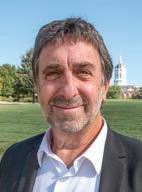
Bruce Runyan is an associate teaching professor. He earned the Certified Public Accounting certification in 1986, the Certified Management Accounting certification in 1990 and the Certified Financial Planner certification in 1994. He worked in public accountancy for regional firms in the Dallas, Texas, and Washington, D.C., areas for 12 years, and developed international tax software at Computer Language Research for four years. Dr. Runyan started teaching in 1995. Before joining MU, he taught at the University of North Texas. His primary teaching areas have been in financial and managerial accounting. Dr. Runyan has previously published in Internal Auditing, the International Journal of Accounting, Auditing and Performance Management and Accounting Forum. His research interests are primarily in the areas of pedagogy and behavioral accounting. Dr. Runyan earned bachelor’s degrees in forestry and accounting from the University of Arkansas at Monticello, a master’s in business administration with a concentration in finance from the University of North Texas and a doctoral degree from Texas A&M University. During the 2020-2021 year, Dr. Runyan completed the extensive Association of Colleges and University Educators (ACUE) comprehensive Effective On Teaching Practices course.
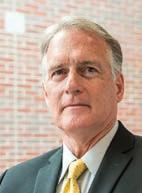
Ken Shaw (B.S. (Accounting) Bradley University; M.B.A., University of Wisconsin; PhD., University of Wisconsin) is a CPA and he teaches financial accounting and corporate governance. He won the School of Accountancy Advisory Board Teaching Excellence Award in 2018. He was awarded the 2011 O’Brien Excellence in Teaching Award, the 2007 Williams-Keepers LLC Teaching Excellence Award, and was voted the “Most Outstanding Faculty” member by the 2019, 2016, 2010, 2006, and 2005 School of Accountancy graduating classes. He won the “Best First Year Professor” award from the 2019 and 2016 execMBA graduating classes. His research has been published in leading academic journals in accounting, finance, and management, including The Accounting Review; the Journal of Accounting Research; Contemporary Accounting Research; Journal of Financial and Quantitative Analysis; Journal of the American Taxation Association; Journal of Financial Research; Journal of Accounting, Auditing and Finance; Strategic Management
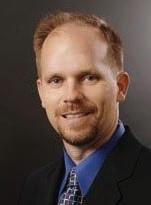
Journal; Journal of Business, Finance, and Accounting; Review of Quantitative Finance and Accounting; Accounting Horizons; Research in Accounting Regulation; Journal of Financial Statement Analysis; Journal of Business Research; and others.. He is actively involved in committees and meetings of the American Accounting Association and the Financial Accounting and Reporting Section of the American Accounting Association. He is the PhD Program coordinator for the School of Accountancy.
Felipe B G Silva (PhD, Cornell University, ’18) is an assistant professor and CBIZ MHM Faculty Scholar, teaching the accounting and business strategy analysis capstone course of the School of Accountancy.His research interests revolve around macroeconomics, monetary policy, banking and financial intermediation, and political economy. His work has been published in academic outlets such as the Journal of
Tim Howald CPA, CFA (MAcc, University of Missouri-St. Louis ’91), Adjunct Professor, has more than 30 years of experience, primarily in the asset management field. He teaches Financial Accounting Concepts and Investments at the undergraduate level and Finan cial Statement Analysis in the online MSF program. He is currently the investment manager for a local insurance company. He began his career in the institutional trust department of a large regional bank, held the CFO posi tion at the global investment management subsidiary of a Fortune 500 insurer, and served as an institutional asset management consultant. He has earned the right to use the Chartered Financial Analyst designation and served as Pres ident of the Nevada Chartered Financial Analyst Society. He is a licensed CPA in the state of Missouri and Colorado. He is a proud Mizzou (BSBA ’84) graduate and serves on the MU Alumni Association Finance Committee. He is also Treasurer and member of the Executive Committee of the Columbia Chamber of Commerce, Treasurer of the Fair Missouri Foundation, and is on the Board of the City of Columbia’s New Century Fund. Professor Howald returned to Columbia in 2016 after working in the Midwest
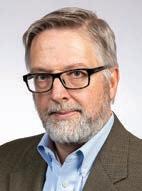
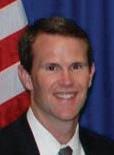
International Money and Finance, Journal of Financial and Quantitative Analysis, Annals of Finance, and Journal of Risk, and has been featured in the Washington Post, Bloomberg, and other media outlets in English, Portuguese, German, and Russian. His solo-authored paper, based on his doctoral dissertation, has been selected as a semifinalist for best paper award at the 2019 FMA Annual Meeting. Prior to his graduate studies, Professor Silva worked for 5 years in the private sector, including a brief career in the aerospace sector (Embraer) and later joining the financial services industry at Itaú Unibanco (Market Risk Division) and Banco Santander (Quantitative Researcher). He was also a founding partner of a start-up enterprise in the telecommunications sector, later sold to a major retailer. He holds a bachelor’s degree in Aeronautical Engineering from Instituto Tecnológico de Aeronáutica (ITA), Brazil, and an M.Eng. degree in Financial Engineering from Cornell’s Operations Research and Information Engineering Department. Outside of academia, Professor Silva enjoys spending time with his wife Anna and kids, Eric and George.
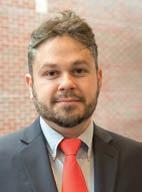
and both coasts over the course of his career. He enjoys being back on campus and paying it forward to the next generation of Tigers.
Chad M. John (Masters in Forensic Accounting, Florida Atlantic University, ’10; BSAcc, University of Missouri ’92), CPA-CFF, CFE, Adjunct Professor, is in his fourth year teaching Forensic Accounting, a graduate level elective course in the School of Accountancy. Chad graduated from the University of Missouri with a BS in Accountancy. Chad brings to the classroom 22 years of experience investigating complex white collar crime as a Special Agent with the Federal Bureau of Investigation. The Forensic Accounting course Chad teaches provides students with not only an academic understanding of the skills required and opportunities available for forensic accoun tants, but also real-world experiences through expert guest speakers in the law enforcement and forensic accounting professions. The course includes a hands-on capstone case wherein the students perform a forensic investiga tion, requiring an interview of an identified suspect. Chad continues to accept public speaking invitations throughout
the year to civic, professional, and academic groups regarding today’s white collar crime. Chad is a licensed CPA in the state of Missouri, Certified in Financial Forensics, and a Certified Fraud Examiner.

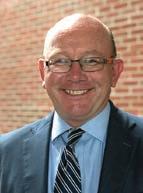
Chad Reed was previously a Director at PwC where most recently he was part of the Assurance Innovation group, where he led transformation efforts relating to how audits are executed. Prior to this role, he managed various assur ance engagements focusing on audits of both public and private companies and completed a tour in Melbourne, Australia lasting over two years. Chad brings this international experience to students within the International Accounting course as part of the Masters of Accountancy (MAcc) program. He now lives in Fayetteville, AR where he is instructs and supports accounting students at the University of Arkansas. He is a licensed Certified Public Accountant (CPA) in the states of Arkansas and Missouri. His is a member of the American Institute of Certified Public Accountants (AICPA) and serves on the Audit Committee for the City of Fayetteville, AR.
John Stansfield is the youngest of six brothers who are all graduates of Mizzou. He has been married for 33 years to Julie Stansfield, MD. Together they have two adult sons, Adam and Henry, and their family is expected to grow soon with Adam’s recent engagement to Serina Wilson. In his professional life, Dr. Stansfield has been a professor at MU teaching a diverse portfolio of Finance and Accounting courses since 2001. His most important contribution to the Trulaske College of Business has been
getting the college recognized by the CFA Institute in the University Affiliation Program since 2007. This has been an enormous benefit to the students. In his off-campus life, Dr. Stansfield has earned two distinguished service awards from the Boy Scouts of America: The Silver Beaver Award and the ¡Scouting!...Vale la Pena! Service Award. He also continues to serve as Vice President of Fiscal Advisory for Area 5 of the Central Region of the National Council of the Boy Scouts of America. He also serves as the Philmont Ambassador for the Great Rivers Council, taking boy scouts on two-week hikes each summer in the Rocky Mountains.
Stacy Wright CIA (BS, MBA, Columbia College, ’02), has 10 years of audit experience and over 12 years of experience in the accounting field. She is currently the Director of Finance and Administration for the University of Missouri, Trulaske College of Business. After serving a 3rd term as the President and Academic Chair of the Central Missouri chapter of The Institute of Internal Auditors, she is now serving on the Board of Directors for the organization. In her professional career, Stacy worked for the Missouri State Auditor’s Office, was the Director of Compliance and Quality Control for the Missouri Department of Social Services, and the Director of Internal Audit for the University of Missouri System. Stacy is serving as the Internal Audit Education Partnership Coordinator for the University of Missouri’s School of Accountancy where she is working to build a partnership with the Institute of Internal Auditors in order to promote Internal Audit education and the profession. She is also an Adjunct Professor in the University of Missouri’s School of Accountancy, teaching a graduate level Internal Auditing course.
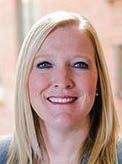
Rhonda Blythe attended Columbia College and comes to us from the Missouri Veterinary Medical Association, where she worked as a Bookkeeper. Previously, Rhonda has also worked for Shelter Insurance, Farm Bureau Insurance, Exchange Bank, and Missouri Department of Revenue. In her free time, Rhonda enjoys spending time with her husband Kendall and son Ross.
Shannon Ferguson currently serves as the Director of the 150-hour and Masters in Accountancy programs. In this role, she assists in ensuring that the accountancy programs at the University of Missouri continue to lead the way in success for students academically and professionally. She joined the University of Missouri as the Assistant Director of the 150-hour and Masters in Accountancy programs in 2015. In her current role, Shannon advises graduate students in the program as they complete coursework, internships and look to begin their professional careers. Shannon coordinates directly with firms and corporations in order to increase internship opportunities for current students and full-time placement rates for the graduates of the program. Additionally, she leads the coordination of the school’s study abroad program which takes place during the winter intersession for accountancy graduate-level students. She also works with the Graduate Programs Office with the Trulaske College of Business to recruit and advise students in the Online Master of Accountancy program. In addition, she teaches Audit Theory and Practice I each fall to
distance-based students and is a part of the teaching team for the Freshmen Interest Group for students interested in pursuing a career in accounting.
Charlie Frey (BA, Saint Louis University ’04, MLA, University of Richmond ’07, Ph.D, University of Missouri ’18), joined as the Assistant Director of the 150-hour and Master’s Programs in Accountancy in June 2021. In this role, he advises the undergraduate students in the program, co-coordinates the graduate-level study abroad program and serves as a liaison to the accounting firms to facilitate internships and full-time placement. Charlie serves as a member of the Trulaske Inclusion, Diversity and Equity committee and is a staff advisor for the College of Business Student Council. Charlie joins us from the Trulaske Undergraduate Advising Office where he served as an academic advisor since 2019.
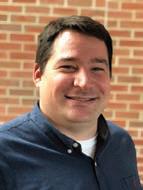
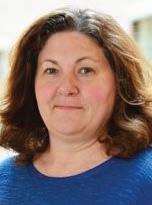
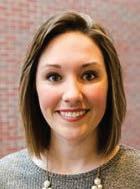
Shawn Pallardy is the Executive Assistant, and has been with the School of Accountancy since 2014. She earned her bachelor’s degree at Central Methodist University and is currently working on her Masters of Business Administration with the University of Missouri – Kansas City. Shawn was recently a finalist for the Chancellor’s Outstanding Staff Award and was also honored to receive the 2022 Arunachalam Family Staff Excellence Award. In her free time, she enjoys spending time with her husband and their two kids!
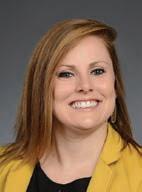
Aswini Mishra, Vairam Arunachalam, Sanket Mohapatra, & Dennis Olson (Eds.). (2021). The Financial Landscape of Emerging Economies. Springer.
Aswini Mishra, Vairam Arunachalam, & Debasis Patnaik (Eds.). (2021). Critical Perspectives on Emerging Economies - An International Assessment. Springer.
Felipe Bastos Gurgel Silva, Gustavo Cortes, George P Gao, and Zhaogang Song. (2022). Unconventional Monetary Policy and Disaster Risk: Evidence from the Subprime and COVID-19 Crises. Journal of International Money and Finance.
Govindarajan, V., Ilyas, H., Silva, F. B. G., Srivastava, A., and Enache, L. (2022). The Rapid Rise and Fall of Biotech Stocks Adversely Impacts the Society. California Management Review.
Govindarajan, V., Ilyas, H., Bastos Gurgel Silva, F., Srivastava, A., & Enache, L. (2022). How Companies Can Prepare for a Long Run of High Inflation. Harvard Business Review.
Govindarajan, V., Ilyas, H., Bastos Gurgel Silva, F., Srivastava, A., & Enache, L. (2022). Restoring Shareholder Confidence When Your Stock Is Down. Harvard Business Review.
Mahfuz Chy, Gus De Franco, and Barbara Su. (2021). The Effect of Auditor Litigation Risk on Clients’ Access to Bank Debt: Evidence from a Quasi-Experiment. Journal of Accounting and Economics.
Mahfuz Chy and Hoyoun Kyung. The Effect of Bond Market Transparency on Bank Loan Contracting. Journal of Accounting & Economics (forthcoming).
Mahfuz Chy and Ole-Kristian Hope. (2021). Real Effects of Auditor Conservatism. Review of Accounting Studies.
Demeré, B. W., K. L. Sedatole, and J. Wilson. (2021). Counterfeiting and anti-counterfeiting costs: An application of cost of quality concepts. Brand Protection and the Global Risk of Product Counterfeits: A Total Business Solution Approach.
Will Demeré, Nick Higginbotham, and Luke Nash. (2021). Making Audits More Effective Through Data Visualization. Journal of Accountancy.
Wilson, J. M., C. Grammich, B. W. Demeré, and K. L. Sedatole. (2021). Identifying and assessing performance metrics in brand protection. Brand Protection and the Global Risk of Product Counterfeits: A Total Business Solution Approach. Albrecht, A., M. Glendening, K. Kim, and R. Pereira. (2021). Auditor Going Concern Opinions and Bank Systemic Risk: Evidence from the 2007-2009 Financial Crisis. Auditing: A Journal of Practice & Theory.
Khurana, I., and H. Kyung. (2021). Internal Control Material Weakness and CEO Recruitment. Journal of Business, Finance & Accounting.
Khurana, I., N. Lundstrom, and K. Raman. (2021). PCAOB Inspections and the Differential Audit Quality Effect for Big 4 and Non-Big 4 U.S. Auditors. Contemporary Accounting Research.
Khurana, I., and R. Zhong. (2021). Bank Audit Regulations and Reporting Quality. Journal of International Accounting Research (forthcoming).
Khurana, I. K. (2022). Estimation in Accruals, Analyst Following and Earnings Forecast Properties. Advances in Accounting (acceptance Subject to Edits by the Editor).
Khan, S., and Mauldin, E. (2021). “Benefit or Burden? A Comparison of CFO and CEO Outside Directorships?” Journal of Business Finance and Accounting. Neuman, S. S. (2021). Examining Tax Strategy Choice. The Journal of the American Taxation Association.
Shaw, K. W., & Whitworth, J. (2022). “Client importance and unconditional conservatism in complex accounting estimates” Advances in Accounting.
Wild, J., & Shaw, K. (2021). Managerial Accounting (8th ed.). McGraw-Hill Education.
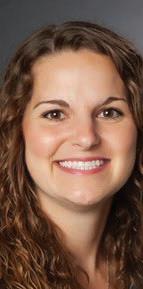
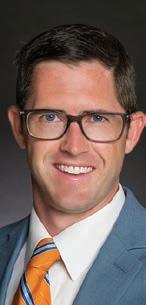 By Kelsey Allen
By Kelsey Allen
New research from faculty in the Trulaske College of Busi ness’ School of Accountancy gives us insights into the best way to respond to a global financial crisis, how CFOs can develop skills for their modern roles and responsibilities, a new way to predict internal control quality, and how data visualization can make audits more effective. Here’s a look at four researchers and their findings.
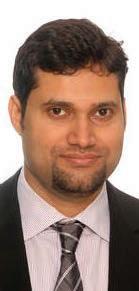
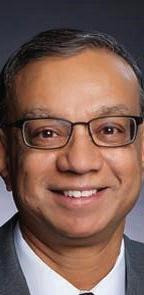
The global pandemic triggered a deep economic down turn in the U.S., leading some to compare the Great Lock down to the Great Recession. Although the 2008 Global Financial Crisis and the pandemic have different causes, the consequences are similar.
New research from Felipe Bastos Gurgel Silva, an assistant professor in the School of Accountancy at the Trulaske College of Business, compares these crises and offers insights into how central banks can respond to future disasters in the financial market.
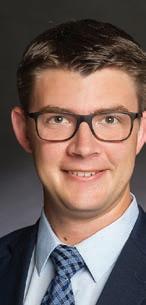
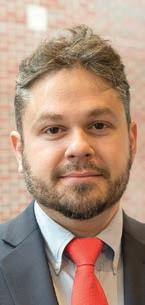
“Whenever we have two events that are similar, the similarities themselves don’t tell us much,” Silva says. It’s by comparing the differences between the financial crisis and the pandemic that Silva was able to identify important lessons for the U.S. and global economies.
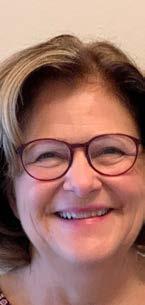
The key difference between the Great Recession and the global pandemic were the responses by central bank gover nors and policymakers from major emerging market econo mies. During the Great Recession, when the epicenter of the crisis was the U.S. market, the Federal Reserve unilaterally
responded, extending its balance sheet and using the money generated to purchase assets from the market, an interven tion known as quantitative easing.
“The Fed acted like the protagonist of the policy response,” Silva says. “What happens is we have a bigger base of U.S. dollars relative to other countries. The U.S. dollar is relatively depreciated when compared to other currencies. This can come with negative consequences because it generates bubbles in other markets and destabi lizes capital flows in other countries.”
The ongoing global recession caused by the pandemic, on the other hand, elicited a response by the Federal Reserve and 20 other central banks that not only intervened in their own domestic markets but also coordinated globally with one another.
Silva and his colleagues wanted to know if this multilateral response to the pandemic mitigated the losses experienced by emerging market economies during the subprime crisis. They found that while unconventional monetary policies like quantitative easing successfully lowered the disaster risk for the U.S. during both crises, the unilateral interven tion from 2008 to 2014 increased disaster risk in emerging market economies. However, when multiple central banks act together, like during the global pandemic, there is a decline in disaster risk for both advanced economies and emerging markets.
“The advantage when you have a multilateral action by central banks is that you don’t have distortions because everybody is expanding,” Silva says. “It’s more destabi lizing when you have a single central bank acting. If there is a major crisis, it is better to have the monetary policy
responses coordinated across different central banks.”
The paper, “Unconventional Monetary Policy and Disaster Risk: Evidence from the Subprime and COVID-19 Crises,” appeared in the Journal of Interna tional Money and Finance
Over the past few decades, the role of the chief financial officer has expanded beyond budgeting and financial reporting. Today, a CFO might also focus on strategy, optimize investments and influence operational deci sion-making.
Elaine Mauldin would know. Before she was the BKD Distinguished Professor in the School of Accountancy at the Trulaske College of Business, she was a CFO. When the CEO of the company retired, he told Mauldin that she would need to get more operational experience to assume the position of CEO. Mauldin decided to go into academics instead.
So how do CFOs develop the skills for these modern roles and responsibilities? Mauldin and her colleague wondered if serving on outside boards might offer CFOs the expe rience necessary. “Even though you might be on the audit committee, you’re a full board member, so you’re in on the strategy conversations, and you might be learning some thing that could improve your own firm,” she says.
Historically, CFOs don’t usually sit on outside boards. A sample of firms from 2003 to 2014 shows that only about 9% of CFOs, compared to about 24% of CEOs, have outside board directorships. Using CEOs as a baseline, the researchers found that when a CFO sits on an outside board, their home board is less likely to underinvest in capital and to hold excessive cash, ultimately improving the firm’s long-term performance. Prior research found that CFOs are typically associated with more conservative financial policies. So these new findings suggest that having wider exposure to a variety of business practices through outside board experience provides a channel for knowledge transfer and enhances the skill sets of the CFO.
“When the CFO serves on another board, they get exposed to broader concepts and they’re less likely to do that underinvesting in their own home firm,” Mauldin says. “In contrast, when the CEO serves on another board, they did not have much effect on their home firm’s policies.”
Currently, about 77% of large firms maintain some restric tions on their executives’ service on outside boards, often because of concerns about additional time commitments. Yet the findings show that not only should organizations support CFO outside board service but also that CFO outside directorships provide more benefits to home-firm policies than do CEO outside directorships.
“There is this perception that it’s going to be too much of a burden, that the CFO is too busy to be on another board, but there are some benefits to being on that board,” Mauldin says. “Boards and organizations like the National Associa tion of Corporate Directors might want to weigh the cost and the benefit and lighten up that restriction.”
The paper, “Benefit or burden? A comparison of CFO and CEO outside directorships,” appeared in the Journal of Business Finance & Accounting.
When players in the capital market are making allocation decisions or when auditors are planning financial statement audits, they evaluate a firm’s internal control deficiencies to manage financial risk appropriately. But they often don’t have access to this information until after the fiscal year is complete.
Stevie Neuman, associate professor and Tax Excellence Professor in the School of Accountancy at the Trulaske College of Business, and her colleagues have discovered a new way to identify firms with ineffective internal controls in a timely manner: interim effective tax rate estimates.
Every quarter, companies are required to issue finan cial statements, which include an estimate of their annual effective tax rate, or the rate at which they expect to pay tax on all of their earnings for the entire year. At the end of the second quarter, armed with more information, companies do another forecast and revise their effective tax rate.
“It’s basically a forward-looking estimate for earnings,” Neuman says. “It should really contain information about where the company is headed.”
And it does. The researchers found that if a company is good at forecasting its effective tax rate — if there’s not a lot of volatility from quarter to quarter — it suggests that the firm’s forecasting systems are good and it has better internal control systems. On the other hand, if there is a lot of vola tility — say the company estimates its interim tax rate to be 20% in the first quarter, 15% in the second quarter and 30% in the third quarter — then that company is much more likely to have significant internal control weaknesses.
“If there’s a lot of volatility, it might suggest that there’s a lot of operational volatility going on,” Neuman says. “There are changes in the company, they’re buying or acquiring another company, or the systems they use to forecast earn ings just aren’t that good and they don’t really have a good idea of what the income is going to be, which would then imply that internal control systems aren’t very good, that those financials-generating systems aren’t very good.”
The volatility of the effective tax rate not only predicts tax-related internal control issues. The researchers also found that it predicts non-tax-related weaknesses.
“Everything ultimately flows into taxes,” Neuman says. “Every dollar that the company earns or every dollar of expense that they report ultimately affects that tax number. So not only is it able to predict issues with respect to reporting taxes but also some of these other areas that we might be more interested in because they’re potentially much larger dollar amounts, such as predicting misstate ments of revenue.”
Now regulators and investors can use interim estimates of the annual effective tax rate as signals of the likelihood that a firm’s internal controls are ineffective.
“Your average investor can take two companies, compare the volatility of those numbers and make a decision about which one they think has better financial reporting quality, which means that they can rely on those financial statements a little bit more,” Neuman says. “Regulators are always interested in trying to identify which companies should be audited. So if they are considering a pool of 50 companies and they only have the resources to look at 20, well, this might be one way that they go about narrowing that group down. If that estimate is really volatile, they might want to be a little bit concerned about numbers being reported on the financial statements because they might not be completely accurate.”
The paper, “Interim Effective Tax Rate Estimates and Internal Control Quality,” appeared in Contempo rary Accounting Research
How have you gauged the quality of a company’s financial report? Maybe you considered the audit report, whether the firm met earnings targets or how quickly the financial state ments were filed. You could learn from each of these items, but not until after year-end. What if there were an easily-ob tained metric providing information about the quality of the financial statements prior to year-end?
Public companies are required to issue quarterly financial statements to inform stakeholders and other interested parties about operating results as the year progresses. Most people are interested in the quarterly earnings numbers, which offer insight into the firm’s earnings trajectory for the year. But not all estimates in the quarterly report are created equal. Most estimates provided are simply the amount
During a busy season, an auditor might work 70 to 80 hours a week. In 2020, two then-master’s students in the School of Accountancy at the Trulaske College of Business, Nick Higginbotham and Luke Nash, wondered how they might use their time more effectively and efficiently.
Enter data visualization.
In the past few years, more and more accounting firms have been graphically representing data to spot trends and anomalies, says Will Demeré, an assistant professor of accountancy and RubinBrown Faculty Scholar who served as the students’ faculty adviser on the project. “Based on conversations with partners from some of the big accounting firms, data visualization is something that they are increas ingly using,” he says. “This was a great opportunity to help promote some of these tools and give some examples of how they could be used in practice.”
In an applied article published in the Journal of Accountancy, “Making Audits More Effective Through Data Visualization,” the co-authors highlight four ways in which auditors can leverage client data.
One way auditors can use data visualization is for journal entry testing. For companies that process a large volume of transactions and have numerous accounts, data visualization can make outliers obvious and help the auditor quickly iden tify unusual patterns and potential risks that may have
of income earned or expense incurred for that quarter. However, one value – the estimated tax rate – is an estimate of the annual tax rate for the company.
Financial accounting standards require companies to esti mate their annual tax rate each quarter and include it in the interim report. Why is this important? To estimate annual tax expense, managers must estimate annual income. Thus, quarterly tax estimates serve as a signal of expected future earnings.
Because these estimates are partly based on management’s forecasts of taxable income, annual tax rate estimates could provide insight into financial reporting quality issues –specifically, the quality of systems that generate the reports. Because annual tax rates are estimated each quarter, we can see revisions to the estimate throughout the year. These revisions can signal one of two things – the company’s oper ations are changing or the company’s financial reporting systems are insufficient to generate accurate forecasts.
When controlling for changes in operations, Professor Stevie Neuman and her colleagues found that companies
otherwise been difficult to catch. For example, a chart might show that an accounting clerk has an usually high number of transactions in a quarter, much larger than any previous period or other accounting clerks. “There could be a good reason for that,” Demeré says. “But at the very least, it helps the auditor identify where they want to focus their atten tion.”
Another task made easier by data visualization is cutoff testing, which is when the auditor determines whether trans actions have been recorded within the correct reporting period. Comparing shipping, delivery and sales dates from underlying documents can be an incredibly time-consuming task. “With data visualization, it makes it really easy to see if there’s a drastic cutoff between accounting periods, which makes it more obvious to the auditor that there may be a higher risk of sales being recorded in an incorrect period,” Demeré says.
Similarly, data visualization is commonly used in risk assessment. For example, audit teams can quickly identify unusual trends or large deviations from forecasted levels. They might also filter and sort based on underlying accounts or classes of transactions, again enabling them to determine where to focus their attention during risk assessment.
Data visualization isn’t just a tool to increase the efficiency and effectiveness of an audit. It’s also a helpful tool when it comes to communicating insights and findings from the
audit to clients. A graphic, chart or dashboard can be easier to interpret than traditional tables and help clients better understand what the auditor found.
In Demeré’s advanced auditing course at the Trulaske College of Business, he helps students think through how to communicate data effectively and they spend time working with visualizations. “A lot of the firms are increas ingly looking for students who have strong skill sets in data analytics, and data visualization is certainly a piece of that,” he says. Today, Higginbotham, BS Acc, M Acc ’20, is an assurance associate at PwC, and Nash, BS Acc, M Acc ’20, is an audit associate at KPMG.
There’s a reason the School of Accountancy in the Trulaske College of Business has been ranked among the top 10 in the nation in research productivity by Academic Analytics: Faculty are publishing significant findings in top-tier jour nals on everything from auditor conservatism and its impact on innovation to fiscal deficits and their effect on loan-loss provisions. Here’s a closer look at four researchers and their findings.
that significantly revised their annual tax rate estimates during the year were more likely to have internal control weaknesses and to subsequently restate their financial reports. Moreover, not only did this metric predict tax-re lated issues, it also predicted non-tax-related issues, pointing to the essential need to forecast income in order to forecast tax rates.
This finding is interesting because it suggests that financial statement users, and even managers themselves, can use a simple calculation – the standard deviation of quarterly tax estimates – to discern financial reporting quality prior to year-end. Thus, the resources of companies and audit firms could be deployed more cost effectively, and stakeholders, especially investors, could make better decisions regarding the reliability of the financial statements, improving their investment selection. The lesson here: powerful infor mation can come from a single estimate.
For more information, please see the peer-reviewed study, “Interim Effective Tax Rate Estimates and Internal Control Quality.”
Before Keith Czerney was an assistant professor of accountancy at the Trulaske College of Business, he worked for five years as an external auditor. So it’s not surprising that the Deloitte Faculty Scholar’s research focus is on audit reports.
While looking at dual-dated audit reports — reports that not only include the date the fieldwork ended but also a later date to indicate the inclusion of additional disclosures — Czerney and his colleagues noticed that the second date is often triggered by something that’s called a Type II subse quent event. A subsequent event is an event that occurs after a reporting period but before the financial statements for that period have been issued or are available to be issued. A Type II subsequent event indicates that whatever happened does not yet affect the amounts on the financial statement. Some examples: the issuance of new debt or equity, an acqui sition, property loss following the end of the fiscal year.
“Take a hurricane or a wildfire that happens after the company’s fiscal year ends but before it files its financial statements,” Czerney says. “It’s an unpredictable event that can be significantly detrimental to a business. The effect is not going to be reflected in the financial statement as of Dec. 31, but it will have an effect in the future. Let’s at least tell
investors about it so they know this has happened and it will have accounting implications for us in the future.”
What Czerney and his colleagues found is that these Type II subsequent events actually do affect the current finan cial statements — they lower the quality of the financial reporting. Company managers have relatively fixed time and resources to devote to preparing financial statements, and they might also be attending to the legal matter, helping with cleanup from a natural disaster, or involved in issuing more stock or debt. “In essence, they’re kind of distracted and their time is stretched thin or distracted away from their primary responsibility of financial reporting,” Czerney says.
The same is true of the auditor: “If you also have a big event that happens to one of your clients and your office doesn’t have a lot of extra people or has a lot of other stuff going on at the same time, like a number of other audits happening concurrently, it’s going to be more difficult for you to respond to that subsequent event in an appropriate way.”
When managers and auditors are resource-constrained, the quality of their reporting suffers, and the information they give to investors is not as accurate. The researchers found that Type II subsequent events are associated with higher odds of a subsequent restatement. And it’s not the existence or nature of the events themselves that leads to lower post-audit financial reporting quality but rather the timing of the events during the year-end closing process.
“Companies have some discretion about when these subsequent events happen,” Czerney says. “For example, if their attorneys are working on settling a lawsuit and people from management are involved, they have discretion as to when they actually work on it. If they have to file their finan cial statements at the end of February, why not hold off on settlement negotiations until the beginning of March? Or if they need more money so they can grow their company and they want to issue debt or equity, that’s a very time-con suming event. Does it need to be done during their finan cial reporting period? Or can it wait until March 15? It’s important for managers to have some awareness that these events do have consequences and can affect the quality of the information that they’re making available to investors.”
The study, “Do Type II Subsequent Events Impair Financial Reporting Quality?” was published in The Accounting Review.
The fall of Enron has had significant implications for the accounting profession. The quality of financial statement audits was called into question, and the media and regulators held audit firms responsible. In 2002, President George W. Bush signed into law the Sarbanes-Oxley Act, which
created strict new rules for accountants and auditors and imposed more stringent recordkeeping requirements with the goal of promoting the accuracy of financial reporting for publicly held companies. Because of these new litigation and reputational concerns, auditors have incentive to be more conservative in their assessment of their clients’ financial statements.
Auditor conservatism has benefits: High-quality audit reports can make it easier for clients to access financing and reduce agency costs. But Mahfuz Chy, an assistant professor of accountancy in the Trulaske College of Busi ness, and his colleague found that there are also costs to auditor conservatism.
“If auditors are more strict, it does help to curb those excesses in accounting — the accounting numbers become more conservative and managers cannot exercise their income-increasing accounting discretion,” Chy says. “But if you’re forcing managers in one way not to exercise their discretion, they are going to try to offset the stringency in another way, which could be even worse.”
The researchers found that when companies experience an increase in auditor conservatism, they reduce investments in research and development by nearly 6%. By reducing their long-term investment in R&D, they increase their current period earnings and meet short-term performance targets. “But that could be even more harmful because you really need innovation in the economy,” Chy says. The firms the researchers studied received approximately 7% fewer patents and 10% fewer citations, and the results were more pronounced when the firms faced greater equity and debt market pressures and had greater litigation risk.
These findings have policy implications, Chy says: “The prevailing notion is that auditor conservatism is always good. But we’re showing that there could be some harmful effects if auditors are too conservative. When there is discussion about auditor conservatism in academia and policymaking, we need to think about all the aspects and hit a balanced approach so auditors are conservative but not so much so that they are impeding innovation.”
The study, “Real Effects of Auditor Conservatism,” has been accepted for publication in Review of Accounting Studies.
Felipe Bastos Gurgel Silva was in a predicament. The assistant professor of accountancy in the Trulaske College of Business wanted to know what effect a government’s fiscal deficit might have on banks’ credit risk and loan-loss provisions. But unlike a scientist in a lab who measures the effect of a given treatment in a randomized experiment with a treatment group and a control group, Silva couldn’t assign
Canada a higher deficit and Mexico a lower one.
“I had to find a new way to disentangle the fiscal condi tions of the government from the overall macroeconomic conditions,” he says. “To get something closer to what a scientist is doing in a lab, I needed to find situations where the deficit is increasing for reasons that are unrelated to the business cycle.”
To do that, Silva looked at governments’ military spending, which is related to geopolitical conditions, not economics, he says. “If you spend more with your military, your deficits will increase because you are ramping up government spending and not necessarily ramping up your tax collection as well.” Analyzing data from 39 countries with increasing deficits due to defense expenditures, Silva found that the higher the deficit, the less fiscally stable the government is and the less capable that government is of safeguarding the banks if there is a recession or financial distress in the banking sector.
“Deficits matter for the credit risks the banks face,” Silva says. “It’s better when the government has deficits under sustainable levels because if banks start facing financial distress, the government has a variety of ways to stimulate the economy and to safeguard the banks, either directly by providing bailouts or indirectly by using fiscal policies to stimulate the economy and help borrowers, which, in turn, helps reduce the risk of the bank.”
Silva’s research shows when fiscal conditions worsen, banks increase their loan-loss provisions. But the implica tions of his research suggest that banks’ provisioning rules should be forward-looking: “When you have a sequence of good years when everybody is doing well and the economy is coming closer to full employment, what happens? Banks set up smaller provisions because they expect to be losing less with their credit portfolios. So whenever a bad outcome actually hits, they won’t be as prepared. What you want is that whenever you have a sequence of good years, you end up over-provisioning so you reserve more for bad years. That way, whenever a bad year comes, you’ll be better prepared to withstand credit losses.”
The study, “Fiscal Deficits, Bank Credit Risk, and Loan Loss Provisions,” has been accepted for publication in the Journal of Financial and Quantitative Analysis.
Do PCAOB inspections improve audit quality, or do they not — that is the question Inder Khurana, the Geraldine Trulaske Chair of Accountancy in the Trulaske College of Business, wanted to know.
Before the Enron scandal, the auditing profession was self-regulated. In response to Enron and several other accounting scandals, Congress enacted the Sarbanes-Oxley
Act, which established the Public Company Accounting Oversight Board (PCAOB), which inspects auditors of companies registered with the U.S. Securities and Exchange Commission. The Big Four accounting firms as well as accounting firms with more than 100 public clients are inspected annually. Firms with 100 or fewer public clients are triennially inspected. The goal of the inspection, which includes a review of the audit work papers, quality control and tone at the top, is to assess and improve audit quality. But does it?
“Researchers, audit firms, their clients and regulators are interested in empirical evidence on the effectiveness of public regulation,” Khurana says. “We were interested in knowing if the PCAOB inspection program improves inspected auditors’ audit quality of U.S.-listed clients for both annually and triennially inspected audit firms.”
Khurana and his colleagues – including Nate Lundstrom, PhD, ’19 -- pored over financial statement data. To measure audit quality, the researchers looked at the likelihood of material financial misreporting as well as other more subtle indicators of clients’ earnings management. What they found is that audit quality improvements resulting from PCAOB inspections are stronger for the largest four audi tors (the “Big Four”) relative to smaller auditors.
“The Big Four have more of a reputation to protect than a small audit firm, and they also have deep pockets, which results in more litigation exposure,” Khurana says. “As Big Four auditors have more at stake in terms of repu tation and litigation risk compared to smaller auditors, it makes sense that their audit quality response is similarly stronger.” Another potential driver of this asymmetric audit quality response to the new inspection regime is inspection frequency. The Big Four are inspected annually, so they have more frequent opportunities for continuous improve ment. “We did not find evidence that the smaller auditors improved on par with the largest four,” he says. “One possibility is that their more infrequent interactions with PCAOB inspectors resulted in the inspection process having an attenuated impact on their audit quality improvements.”
Khurana’s research offers empirical evidence on the effectiveness of public regulation: “In the context of the highly concentrated U.S. audit market and the importance of the Big 4/non-Big 4 audit quality differential in affecting a company’s auditor choice and information risk, our results suggest the PCAOB inspection program affected audit quality differently among audit firms.”
The study, “PCAOB Inspections and the Differential Audit Quality Effect for Big 4 and Non-Big 4 US Auditors,” is forthcoming in Contemporary Accounting Research.
Built on a tradition of excellence, supported by its historical background as a founding member of the School of Accountancy movement in the nation, and noted for its unique integrated 150-hour program, the mission of the School of Accountancy at the University of Missouri is to:
● Prepare students for success in a diverse and global professional environment through a combination of excellent instruction, early exposure to career opportunities and experiences, extensive interaction with accounting firms and business professionals, and a comprehensive professional development program
● Conduct and disseminate scholarly research that impacts the understanding and improvement of accounting and business environments, practices, and innovations, while preparing the next generation of scholars
● Collaborate with professional partners to advance the flagship mission of the University of Missouri ● Ignite the human potential of the next generation of leaders of the accounting profession by teaching and preparing students for stewardship, planning and adding value to decision making, insuring integrity of information, and ethical decision making.
University of Missouri School of Accountancy Email: accountancy@missouri.edu For more information, follow us on...
■ Regina Wittenberg Moerman
• University of Southern California
• Friday, February 5, 2021 ■ Erin Towery • University of Georgia
• Friday, February 26, 2021 ■ Spencer Young • Arizona State University • Friday, March 5, 2021 ■ Diana Weng
• University of Florida
• Friday, March 12, 2021 ■ Pepa Kraft
• HEC Paris
• Friday, March 19, 2021
■ Shane Dikolli • University of Virginia • Friday, April 9, 2021 ■ Anup Srivastava • Calgary University • Friday, April 16, 2021 ■ Mani Sethuraman • Cornell University • Friday, May 7, 2021 ■ Akash Chattopadhyay • University of Toronto • Friday, May 14, 2021
Dan Lynch • University of Wisconsin • Friday, October 8, 2021 ■ Jason Schloetzer • Georgetown University • Friday, October 22, 2021
■ Frank Murphy
• University of Connecticut
• Friday, November 12, 2021 ■ John Kepler
• Stanford University
• Friday, February 4, 2022 ■ Umit Gurun
• UT Dallas
• Friday, February 25, 2022 ■ Kurt Gee
• Penn State
• Friday, March 4, 2022 ■ Valeri Nikolaev
• University of Chicago
• Friday, April 22, 2022

The Orin Ethics Symposium series is designed to increase awareness and understanding of ethics issues in business and accountancy. Past speakers have included:
• Paul Sarbanes-Former US Senator
• Harry Markopolos-Madoff Whistleblower
• Chris Dodd-Former US Senator
• Jeanette Franzel-PCAOB Board Member
• Mike Oxley-Former US Representative
• Sheila Bair-Former Chair of FDIC
• Andrew Fastow- Former CFO of Enron
• Jacob Soll-Professor of History & Accounting at the University of Southern California
• Mark Whitacre-Chief Operating Officer, Cypress Systems Inc.
• Steven Mintz-Professor Emeritus of California Polytechnic State University
• Gerald Carlson- Managing Partner at KPMG Washington, D.C. (Retired)
In Fall 2021, our featured speaker was Blend President and Former President/CEO at Fannie Mae, Tim Mayopoulos as detailed in the announcement below. Mr. Mayopoulos provided tremendous insights into the financial and regulatory failures surrounding the subprime mortgage crisis – and how/why it is important to avoid mistakes of the past and look to the future.






The Association of Accounting students provides students with a glimpse at the avenues available with an accounting degree. It enhances networking experiences early in students’ academic careers and gives them confidence to interact with future employers.

“Tomorrow’s Accountants Learning From Today’s”

President Lydia Thompson Vice President Kristen Biondo Program Director Martin Lewis Secretary Hannah Kreimeyer Treasurer Ashlyn Zeldin Webmaster Ryan Novoa Public Relations Analia Edwin Service Chair Zoe Akers
Beta Alpha Psi is an international and professional honors organization for accountancy students. The goal of our organization is to assist our members in their growth as business professionals, provide networking opportunities between students and firms, and give back to our commu
nity and university through service events and involvement. Membership into Beta Alpha Psi is considered a high achievement and honor exclusively for GPA-qualifying students admitted into the School of Accountancy pro gram. Throughout the year, we hold weekly meetings where we welcome firm representatives to network, engage in team-building activities, and educate our members on professional skills, diversity, ethics, technology, and current trends in the accounting profession. Upperclassman and BAP alumni with varied experiences have also come to advise students and answer questions about careers, work-life balance, and overall growth as a professional.
BAP members do more than just attend professional meetings. They enjoy social activities to strengthen their relationships with other students in the organization. They provide service to the School of Accountancy by proctoring accounting exams. Additionally, they provide service to the community by cleaning our Adopt-a-Highway location 4 times a year and volunteering at the Central Missouri Food Bank. BAP members are currently participating in our third annual 100-book drive to collect and distribute new or gently used books to children in our community. If your firm would like to be a part of this initiative, please reach out to our VP of Community Service.
This year, officers participated in both the Beta Alpha Psi Regional Meeting and Annual Meeting, where they learned about and participated in investing activities, seminars regarding relevant accounting topics, networking opportunities between other chapters, and more. The meeting provided the officers with best practices to consider implementing for our chapter and ideas for increasing membership and providing more opportunities for our chapter members. We are thrilled to announce that our chapter was recognized by the national Beta Alpha Psi organization as a Distinguished Chapter for the 2020-2021 school year, and we expect to receive this recognition for the 2021-2022 school year as well.
If you are interested in learning more about our organization, please contact either our president, Jimmy Tang, and/or our faculty advisor, Kristen Hockman. Our 2021-2022 officers are as follows:
President: Jimmy Tang
Vice President of Professional Activities: Garrett Samson
Vice President of Social Activities: Reid Zimmerman
Vice President of Community Service: Alicia Dyer
Treasurer: Ashley Chambers
Secretary: Tucker Evans
Faculty Advisor: Kristen Hockman
On Thursday, April 22, 2021 we were fortunate to have Mr. Christopher Briggs, PwC Assurance Partner, present at the Beta Alpha Psi’s Spring 2021 virtual initiation celebration. Mr. Briggs is a Mizzou Alum who has had a very successful career with PwC since graduating. He was recently named the Office Managing Partner for PwC’s Kansas City office. We were very excited for him to share a special message with our new BAP members!

For the Spring 2022 BAP Initiation Banquet, we were excited to have an in-person event with Tom Barry - Tech Electronics, Chief Financial Officer as the keynote speaker. Tom received his BS and Masters in Accountancy from the University of Missouri, and holds an MBA from Washington University in St. Louis. The banquet went extremely well, and took place on Thursday, April 28, 2022. The invitation with additional details is below.


Mizzou Student CPT is a student-run ethics organization. The purpose of CPT is to raise the awareness of ethical dilemmas students will face once they enter their profession while building key leadership skills. The organization provides students with an opportunity to develop and apply ethical business practices and ethical leadership skills. It also provides students with the opportunity to socialize and network with a diverse group of students and professionals. Finally, the organization helps promote a positive focus on students and faculty who exhibit ethical leadership at Mizzou. This year the organization has participated in virtual leadership conferences and looks forward to resuming in-person meeting opportunities, including sending a campus representative to the next national Student CPT Leadership Conference. Undergraduate and graduate students of any major are welcome to attend CPT meetings and become members. For more information on Mizzou’s Student CPT chapter, please contact Professor Bartley (bartleyk@missouri.edu).
The mission of NABA is as follows “As the Mizzou Student Chapter of NABA our mission as a professional organization is to unite students committed to academic and professional excellence while creating leaders in the world of Accounting, Finance, and other related business professions. While developing technical skills is one of our goals, we also aim to promote diversity and commit to our civic duties through giving back to our community.” Our University of Missouri (MU) Student Chapter has made every effort to fulfill our national organization’s mission through several key programs and services designed to address the needs of all students majoring and partaking in the fields of business. This past fall, we have welcomed speakers from EY, AT&T, and E&J Gallo Winery, among other great companies to talk to our chapter to promote and develop professional skills, as well as present underclassmen with several leadership, internship, and

Front row: Brielle Christian; Second row: Imani Penny and Makiya Franklin; Third row: Tobias Davis and Desiree Norfleet; and Fourth row: Cordell Turner, Kahlil Roth-Folly, Christian Ricketts, and Tyson Strong Jr.
full-time job opportunities, MU NABA’s members have continued to participate in networking events with established accounting firms and financial companies. Along with professional networking events, NABA also hosts a few special events each semester so that the members and any of those interested can network and socialize outside of the classroom environment. In the spring, NABA will host Inclusion Illusion which serves to talk not only about diversity in the workplace, but also inclusion and bringing your authentic self to work. Listed below are the 2021-2022 officers. To get more information about getting involved with NABA, please contact NABA’s President, Brielle Christian (bacbdp@ mail.missouri.edu).
President: Brielle Christian
Co-Vice President: Imani Penny
Co-Vice President: Kahlil Roth-Folly
Treasurer: Cordell Turner
Secretary: Christian Ricketts
Historian: Makiya Franklin
Alumni Relations Chair: Tobias Davis
Fundraising/ Community Service Chair: Desiree Norfleet
Public Relations/Marketing Chair: Tyson Strong Jr.
On Friday, April 15, 2022 the National Association of Black Accountants (NABA) hosted the Inclusion Illusion Conference at Memorial Union. The event’s keynote speaker was Ken Bouyer (EY’s Americas Director of Inclusiveness Recruiting) who addressed important issues pertinent to diversity, equity, and inclusion. The event was very successful and informative!
This April the MU NABA chapter was able to make their 3rd corporate trip to Dallas, TX. This year’s excursion, planned by the chapter’s Vice President, Imani Penny, featured six corporate visits. Over the course of these three days the group met with E&J Gallo, BKD, EY, KPMG, The Burch Financial Group and AT&T. In their meetings student were able to learn a great deal about each firm including career and professional development opportunities as well as how these organizations create their own organizational culture. Each tour also allowed the students the opportunity to network with professionals, in a variety of stages of their careers, and to observe the professional work environment. The trip also allowed the group to experience a bit of Dallas with a dinner at Legacy Hall and a visit to the Sixth Floor Museum at Dealey Plaza which chronicles the life, assassination, and legacy of President John F. Kennedy



Accountancy Alumni Scholarship
Ahabb Fisher
Brian Baker
Kieran Holbrook
Robert Distelrath Sydney Goehler Tyler Gray
School of Accountancy Advisory Board Scholarship ACFE Scholarship Emily Maruszak
Alumni with Arthur Andersen LLP Award
Matt DeRouse Morgan Knuckey Kevin Einig
Kim R. Bailey Memorial Scholarship Saige Kaplan Imany Penny
BKD Accountancy Scholarships
Adam Mittendorf
Andrew Chapman Ashlyn Zeldin Collette Howard Ethan Sturm
Faith Grofe Hannah Towers Huxley Waller Josh Dintleman Leana Chen Natalie Walsh Payton Holstine Shelby Petrus Gulie Cerame
Kenneth L. Brown Scholarship
Logan Williams
Michael Clement Nicholas James Will Shafer
Samuel Pottenger
Grace Botner Butler Endowed Scholarship
Evelyn Stone
Stephen G. Butler/ KPMG LLP Scholarship
Justin Burks Maurice Glass Ryan Sparks
Craig R. Campbell–Anders CPAs + Advisors Scholarship Jessica Gerkens
Deloitte & Touche Foundation Fellowship Alicia Dyer Margaret Meehan
Carol Diraimo Scholarship Desiree Norfleet
Kenneth E. Dimitry Memorial Scholarship
Raymond C. Dockweiler Scholarship Ashley Chambers Christopher Rueve
EY Accountancy Scholarship Elle Mundwiller Jerod Rose Josie Pagel Lindsay Moesta Maria Linardos Matt Hemmersmeier Meghan Rettig Sam Kohler Tobias Davis Tyler Hagan
Financial Executives International (FEI)-Kansas City Chapter Academic Award & Scholarship Mariden Chaney
Grant Thornton Scholarship Braeden Denney Caleb Mendoza Tucker Evans
Grant Thornton Doctoral Fellowship in Accounting Charles Oberwiser
Gregg William & Cheryl Givens Scholarship
Delaney Miller Jada Coulombe
Carl Halusa Scholarship
Mike & Yvonne Harreld Scholarship Christian Ricketts
Donald G. Hendren Memorial Scholarship Greyson Brown Hannah Kreimeyer Maci Friedrich
C. Ray Holman Scholarship Jake Mouser
Ronald N. Kohl Memorial Scholarship Blake Monsees Nathan Martin
Nikki & Aaron Krawitz Accountancy Scholarship Kacie Huxol
KPMG LLP Scholarship Gavin Gassner John Fussell John Pender Magalie Thauvette Reagan Sherron
Robert Kvam Memorial Scholarship Sajid Kamal Xiaofan Huang Landers Scholarship Alex Briegleb
Jack & Debra Lay Scholarship
Clyde D. Mason Memorial Scholarships
Bryan Mathew Cassidy Klohmann Jayden Nilles Julie Schueppert
W. Mark Meierhoffer Family Scholarship
Katie Pauk
Monsanto Business Scholarship
Gulianna Cerame
Jemielle Guimbalista
Mark Pinner
C. Richard Morehead Scholarship in Accountancy
Holly Schwartz
Sarah Darmody
Outstanding Graduate Teaching Assistant Award Chris Wertheim
Outstanding Graduate Research Assistant Award
Ilene Lee
Raynolde Pereira Memorial Scholarship Fund
Nancy Huang
Bobbye & Scott B. Picker Scholarship in Accountancy Kathryn Noble
Pricewaterhousecoopers LLP Foundation Scholarships
Avery Snider
Blake Anderson
Carlie Connors
Ella Leininger
Evan Francis Grace Henley
Jack Gillig
Jack Messmer
Ji-Sung Lee
Katiana Porporis
Keeley Van Antwerp
Kelli Rinkenberger
Krystal Ernst
Louis DeGuentz
Nick Chamala
Tyler Correnti
Xavier Paredes
Elise Wenck
Patsy Prugh Endowed Scholarship
Ashley Osborne
John W. Rader Accountancy Scholarships
Carson Lujin Daniel Karr
Dylan Kay Halle Fischer
Jared Baysinger
Joey Liguore Rachel Etwaroo Rachel Malin Zoe Akers
Bob And Sally Robuck Endowed Scholarship
Ben Maune Cade Koehly
Christopher Andrew Parmley Edward Bohnert Jack Cooper
Jason Binkley Kate Ruediger Luke Distler Luke Mertens
Madison Wheelan Tyler Wolfe
RubinBrown Accountancy Scholarship
Tate Howell
John Schweitzer Accountancy Grant Blake Harris Mariah Matson
DR Scott Scholarship Ann Lei
John & Peg Slusher Accounting Scholarship
Brian Hendrickson
Claire Baechle
Davis Platt Elena Boon Jill Hausmann Mackenzie Janes Matt Gentry Jr. Max Kelleher
Meghan Toal Samiya Rangoonwala Keaton Greiwe Annabelle Wieter
Kenneth E. Stone, PhD Endowed Scholarship
Sajid Kamal
Patricia R. Vasterling Memorial Scholarship Ashley Osborne
Weiss Family Scholarship Autumn White
Maxine (Jagels) Wharton & Lee L. Wharton Scholarship
Colton Reddick
Drew Sanders
Dylan Finch Madeline Dickson Maridan Chaney Michael Winger Muhammad Irzam
Earl R. Wilson Memorial Doctoral Scholarship in Accountancy Nancy Huang Sajid Kamal
2021 PCAOB Scholar Award & 2022 Federation of Schools of Accountancy (FSA) Outstanding Graduate Award
Justin Burks
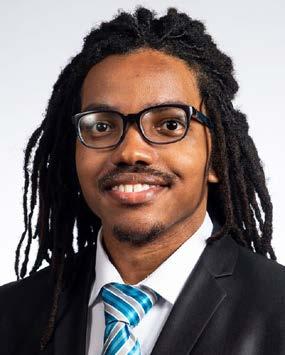
2021 Trulaske Undergraduate Student Leadership Award
• Maurice Glass
• Johnathan Kimble
• Brian Amaonye
2021 PCAOB Scholarship Award Nominee
• Mya Davis
2021 Bukaty Academic Scholar Award, Financial Executives International (FEI) – KC
• Maridan Chaney
2021 FSA Outstanding Graduate Award
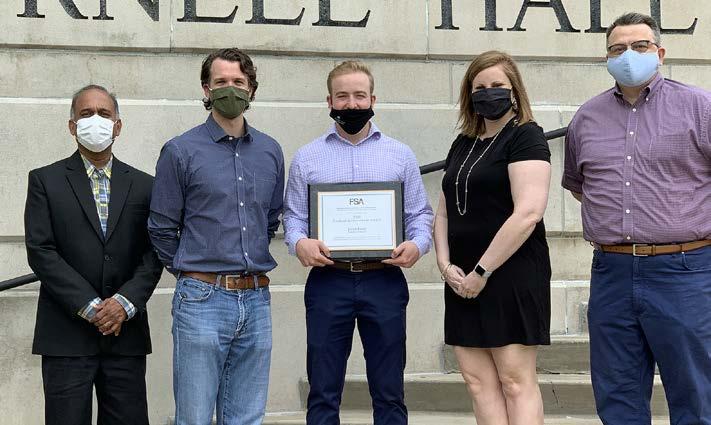
• Jacob Busse
Jacob Busse being presented with the FSA Student Achievement Award. (Left to right: Vairam Arunachalam, Alex Horn, Jacob Busse, Shannon Ferguson, Tim Hurley)
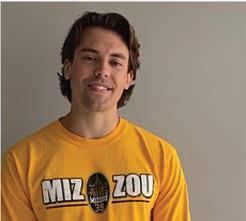
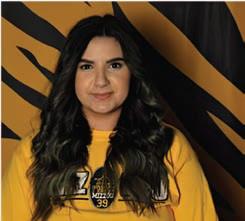
The Mizzou Alumni Association Student Board presents the Mizzou ’39 Award to 39 outstanding seniors each year - chosen for their academic achievement, leadership and service to Mizzou and the community.
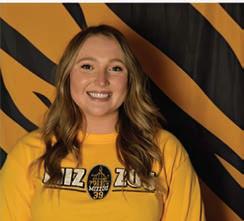
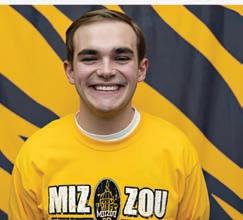
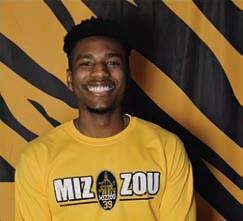
Accountancy
Columbia, Missouri
Mentor: Charlie Koors
Accountancy
Stockton, Missouri
Mentor: Angela Drake
Accounting Millstadt, Illinois
Mentor: Shannon Ferguson
Accountancy
Bloomington, Illinois
Mentor: Donald Gilliam
Accountancy & Economics
Columbia, Missouri
Mentor: Shannon Breske
A Team of Mizzou accountancy students participated in the national finals of the Deloitte FanTAXtic Case Competition, held at Deloitte University in Dallas January 14-16, 2022.
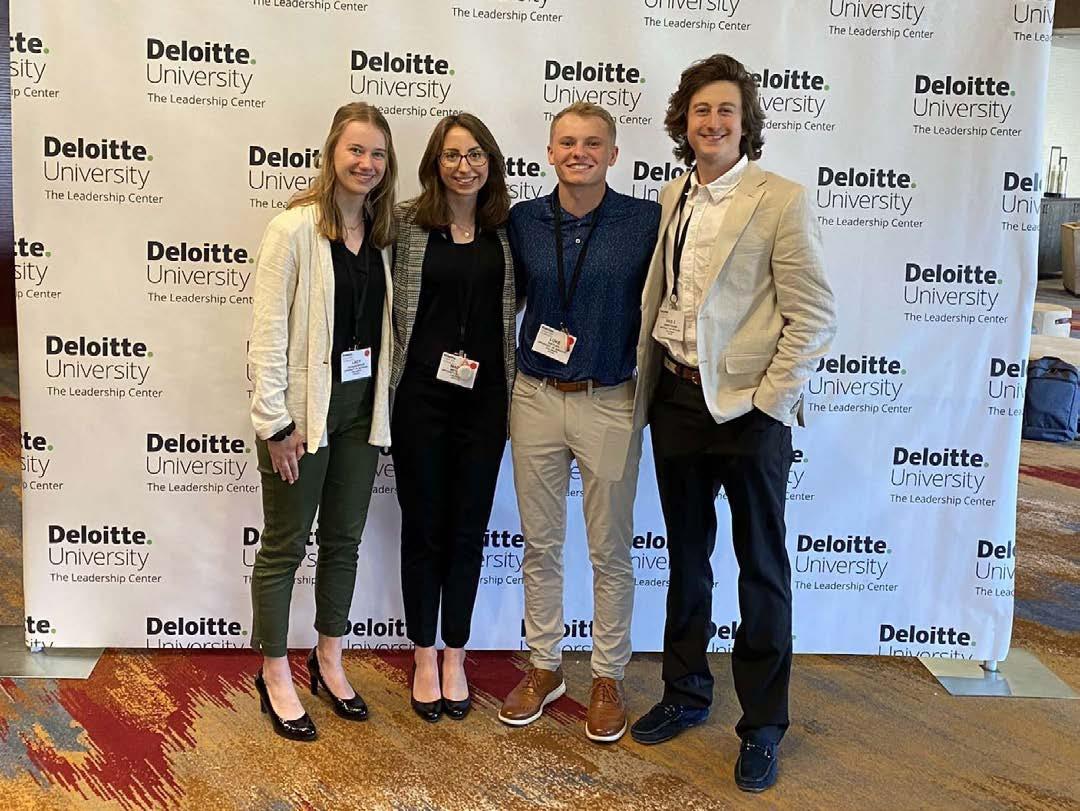
The team included sophomores Lacy Schoneboom and Madelyn Mysterik, junior Luke Distler, senior Reid Zimmerman, and faculty advisor Tim Hurley. The teams
Mizzou competed with included the University of Mississippi, the University of Northern Iowa, the University of Tennesse (Knoxville), the University of Wisconsin (Milwaukee), and Utah State University.
Deloitte awarded $250 scholarships to each of the students and $2,000 to the School of Accountancy in recognition of our team’s performance.
The semi-annual meeting of the School of Accountancy Advisory Board was held on June 4, 2021 with 26 members present. Topics discussed included an update on the pandemic year, 150-Hour Program updates, a tax curriculum update, a University financial outlook update, and donor giving and support of accountancy program, faculty academic mission, and student scholarships.
The next meeting of the Advisory Board was held November 12, 2021 with 24 members present. A student
panel discussed “What I did during the Pandemic and How I made it Through,” faculty presented some of their ongoing research projects, there was a MOCPA, CPA Evolution & MOSBA update, and a discussion regarding strategic issues for the board.
** Rotated off Board during the year † Joined the Board during the year
+ Christopher Briggs
BS Acc ‘96
Managing Partner
PricewaterhouseCoopers LLP Kansas City, MO
Kreg Brown BS Acc ‘84 Audit Partner Plante Moran Denver, CO
Philip Caster MA ’90 Partner PricewaterhouseCoopers LLP St. Louis, MO
Craig Campbell BS Acc ‘84 Partner Anders CPAs + Advisors St. Louis, MO
Jeffrey Comotto BS BA ’80, JD ‘83
Vice President, Taxes (Retired) Anheuser Busch Companies St. Louis, MO
Julie Cubbage
BS Acc ‘95
Chief Financial Officer Girl Scouts of Eastern Missouri St. Louis, MO
Jay Dawdy
BS Acc ‘89 President & CEO Gryphon Strategies White Plains, NY
+ Donna Doerhoff
BS Acc, M Acc ’00 Partner FORVIS St. Louis, MO
**Jeff Echelmeier BS Agr ’87, MS ‘90 Member & CEO Williams-Keepers Columbia, MO **Jeff Gray BS Acc ‘93 Partner
PricewaterhouseCoopers LLP Minneapolis, MN
**Frederick K. Helfrich BS Acc ‘94 Partner FORVIS St. Louis, MO
Michael W. Hickenbotham BS Acc ‘92 Partner Ernst & Young LLP St. Louis, MO
Bob Kimes
BS Acc ‘94 Partner
PricewaterhouseCoopers LLP St. Louis, MO
Lisa Klempert BS Acc ‘93 Partner SFW Partners LLC St. Louis, MO
Jack Lay BS BA ‘76
Sr Exec VP/CFO (Retired) Reinsurance Group of America, Inc. Chesterfield, MO
Brett L. Lewis BS Acc ‘84 Office Managing Partner Grant Thornton Kansas City, MO
Chris Menz BS Acc ’82 Partner Armanino LLP St. Louis, MO
Jim Mintert BS Acc ’93 Partner KPMG LLP St. Louis, MO
Rick Mills BS BA ‘78
Chief Operating Officer CBIZ MHM Leawood, KS
Chester Moyer
BS Acc, M Acc ’03 Partner RubinBrown LLP Kansas City, MO
Randy Oberdiek BS Acc ‘84 Partner FORVIS Kansas City, MO
James O’Hallaron
BS BA ‘81
President & CEO Missouri Society of CPAs St. Louis, MO
Janine A. Orf
BS Acc ‘81 Controller BECS Technology, Inc. St. Louis, MO
John Passanisi
BS Acc ‘93 Partner Ernst & Young LLP Kansas City, MO
Ryan Rapp
BS Acc, M Acc ’04 Vice President, Finance and Chief Financial Officer University of Missouri System Columbia, MO
**Laura Ray
BS Acc ’01, MAcc ‘01 Partner Deloitte LLP Chicago, IL
Brad Richmond BS BA ‘79 Corporate Board Director & Former SVP & CFO (Retired) Darden Orlando, FL
Greg Rottjakob BS Acc ‘87 Principal, SIFT National Leader Ryan St. Louis, M
Josh Scheinerman BS Acc, M Acc ’99 Partner KPMG LLP St. Louis, MO
Sandy Smith
BS Acc ‘91 VP Finance & Accounting Lindt & Sprüngli Inc. Kansas City, MO
Steve Sutton
BS Acc ‘82 MAcc ‘84, Ph.D. ‘87 Retired, KPMG Professor University of Central Florida Orlando, FL
Jeffrey Vogel
BS Acc ’90 CFO
Walsworth Publishing Company Inc. Marceline, MO
Paul L. Vogel
BS Acc ’89, M Acc ’90, JD ‘93 President & CEO Argos Family Office LLC St. Louis, MO
Don’t ask Randy and Pam Oberdiek to try to calculate how much time they’ve spent volunteering for Mizzou. Between 20+ years of meetings for the Kansas City chapter and national governing board of the Mizzou Alumni Association (MAA), case competitions and guest lectures for the Trulaske College of Business, and 150mile drives from Platte City to Columbia and back, the hours add up to more than they can count.

But so do the unforgettable moments they’ve experienced along the way. Like the time they got to hear Curators’ Distinguished Professor Emeritus of Biological Sciences George Smith talk about winning the Nobel Prize. Or the time they ate dinner with SportsCenter anchor John Anderson, BJ ’87. Or the time they tailgated with Tiger quarterback Chase Daniel’s mom in The Grove at Ole Miss.
“You get so much more than you give,” Pam says. And for a couple of high school sweethearts and first-generation college students from rural Missouri, the university had already given them a great deal. “I grew up in the suburbs of a town of about 200 people,” jokes Randy, who was raised on a farm outside of Farley. Scholarships helped cover their tuition, and their education laid the foundation for their careers — Randy at the CPA firm BKD and Pam at Hallmark. “If you want to improve people’s lives, I think the way you do it is through education,” Randy says.
So, in the mid-1990s, when one of Randy’s business associates asked the couple to help out at a Kansas City alumni chapter picnic that raises money for scholarships, they said yes. “Randy is very much an academic at heart,
Pam, Bus ’84, and Randy, BS Acc ’84, Oberdiek are regular faces at Mizzou events, from tailgates and board meetings to fundraisers and Zoom calls.
and Pam is just as passionate about education,” says Vairam Arunachalam, director of the School of Accountancy. “They both have a deep appreciation for the academic values and mission of our great university.” The Oberdieks kept saying yes until, eventually, Pam became MAA president and Randy chair of the Finance Committee. Pam received one of the association’s 2020 Tiger Pride awards.
Randy says one thing just led to another. Pam says there might have been beer involved. MAA Executive Director Todd McCubbin, M Ed ’95, says it’s their small-town values: “They have a high say/do ratio. When they say they’re going to do something, they get it done. They’re there for people. They’re all in.”
When a loved one passes away, they make a memorial gift to the university in their honor, resulting in donations to forestry, accounting, nursing, music, the hospital and athletics. When the football and men’s basketball teams play, they’re in the stands, even in freezing weather in Ames, Iowa, (which is why some people mistakenly believe they have a son on the team) and even on weeknights (which is why some people mistakenly believe they live in Columbia). And when business students need internships, they help place them at their companies.
Owing to the pandemic, it’s been a while since either Oberdiek has been in Columbia — “We’re having withdrawals right now,” Pam says — but they’re still at Mizzou meetings via Zoom. Pam just wrapped up her service as a member of the Mizzou: Our Time to Lead campaign cabinet, and both Oberdieks are on advisory boards — Pam for the Crosby MBA and Randy for the School of Accountancy.
“You don’t always know which one of us is going to show up,” Randy says. “But somebody will.”
Originally published in MIZZOU magazine, Winter 2021
Meet the Mizzou Alumni Association’s newest president.
Jeff Vogel, the Mizzou Alumni Association’s 2022–23 volunteer president, will move the association forward by drawing on and enhancing its many strengths — including the MU student experience. “An important way to ensure graduates become active alumni is by making sure they have a high-quality experience as students,” he says.
Vogel, BS Acc, ’90, credits his own time on campus with his current commitment to the association. “I am thankful that I had wonderful years at Mizzou — not only for the tremendous education I received but also for the relationships I established and the networks I formed that still benefit me today,” he says.

His Mizzou story began long before his arrival on campus. His father, LeRoy, BS BA ’66, the first of his family to go to college, studied accounting at MU. “That laid the foundation for me, my brother and my sister to
attend Mizzou.” It also opened doors for other students. In 2010, the three siblings honored their father by creating the LeRoy Vogel Family Endowed Business Scholarship. To date, about 10 students have received the award, which is available to Bowling Green High School graduates accepted to the Trulaske College of Business.
For the past two decades, Vogel has served as chief financial officer for the Missouri-based Walsworth Publishing Co. Leveraging that business experience on behalf of the alumni association, Vogel has been working with MAA volunteers and staff to develop a three-year strategic plan. Their work will be presented to the alumni association board later this fall. As the plan takes shape, one thing is certain: The association’s future will grow out of its commitment to improving the student and alumni experience. Published on Show Me Mizzou August 3 – MIZZOU magazine Fall 2022
The Trulaske College of Business bestows the Recent Alumni Achievement Award, Alumni Citation of Merit, Special Citation of Merit, and Alumni of the Year award as the highest honors for alumni and friends of the
2021 Alumni Citation of Merit
BS Acc ’93, University of Missouri Member
Lisa has 25 years of experience in public accounting. She is a partner with SFW Partners LLC, based out of St. Louis.
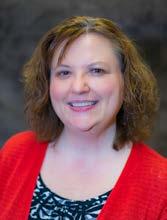
Her areas of expertise include tax compliance and planning. She has extensive experience in the taxation of small and mid-sized businesses, non-profit organizations, individuals, and trusts.
Lisa graduated with honors from Mizzou in 1993. She currently serves on the Trulaske’s Accounting Advisory Board and leads her firm’s recruiting efforts at the university.
Lisa is a member of the Missouri Society of Certified Public Accountants, where she served on the taxation committee for more than five years. In addition, she is a member of the American Institute of Certified Public Accountants.
Lisa is actively involved in several non-profit organizations, including serving as treasurer for the Coalition for Mental Health (CHADS), an organization dedicated to saving lives by advancing the awareness and prevention of depression and suicide among adolescents.
In 2008, the Archdiocese of St. Louis recognized Lisa for her service to high school youth programs. In 2017, Lisa was named by the St. Louis Small Business Monthly as one of the top small business accountants in the metro area.
2021 Alumni Citation of Merit
BS Acc ’96, University of Missouri Assurance Partner
PricewaterhouseCoopers, LLP
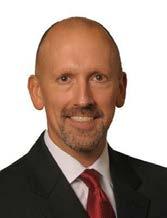
Christopher is an assurance partner in the Kansas City office of PricewaterhouseCoopers (PwC). He has more than 24 years experience providing audit services to both public
college. We are proud to note that many of the recipients from 2021 and 2022 were nominated because of their connections to the School of Accountancy. Their profiles and accomplishments are detailed below.
and privately held companies across a wide variety of industries. He currently leads the 100-plus person Kansas City audit practice and is in the process of transitioning to the managing partner role for the entire 225-person office.
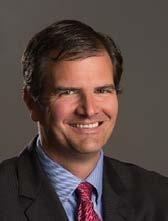
After spending 10 years in the PwC St. Louis office, worked for the SEC Services department of the firms’ national office from 2006-08. In his role, Christopher reviewed more than 200 SEC filings and assisted companies and engagement teams with SEC reporting, and other technical accounting questions/issues, including multiple IPOs and other capital raising transactions.
Christopher then relocated to the PwC Kansas City office in 2008. He has since assisted with the successful transition of multiple audit clients. He has also has advised teams on two multi-billion dollar acquisitions financed through private placement debt, and one subsequent IPO along with several other capital raising transactions.
A native of St. Joseph, Missouri, Christopher relies heavily on the experience and relationships gained while a student at Mizzou — and is very pleased to have spent the vast majority of his career in the state of Missouri.
He is a member of the American Institute of Certified Public Accountants (AICPA) and is a licensed CPA in Missouri and Kansas. He also currently serves as treasurer of the Kansas City Downtown Council.
He his wife, Michelle, and their three children reside in Parkville, Missouri. He enjoys traveling, jogging, and maximizing time with his family.
2021 Alumni Citation of Merit BS Acc ’93, University of Missouri
Partner
Jim has more than 27 years of experience serving as a lead audit engagement partner and SEC reviewing partner on a variety of domestic and international clients in the telecommunications, industrial manufacturing, and health care industries and has extensive experience in capitalraising transactions. Jim also served a three-year rotation in KPMG’s National Office in New York City. Jim is a CPA in Missouri and New York, serves as the President of
the Missouri State Board of Accountancy, and recently completed a four-year period serving on the Audit Committee of the National Association of State Boards of Accountancy.
Jim is a 1993 graduate from the University of Missouri where he earned a Bachelor of Science in Accounting degree. He is active in KPMG’s recruiting efforts at Mizzou and a current member of the School of Accountancy Advisory Board. Jim supports the Trulaske College of Business as a member of both the Jefferson Club and the Davenport Society, and annually contributes to the Accountancy Development Gifts Fund.
Jim lives in St. Louis with his wife Joanne. When not enjoying the best sports Missouri has to offer as fans of MIZZOU football and the Cardinals, Blues and Chiefs, they enjoy spending time outdoors hiking and traveling.
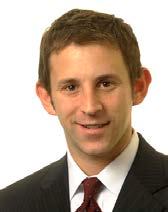
2021 Alumni Citation of Merit
BS Acc/M Acc ’99, University of Missouri Partner KPMG, LLP
Josh is a partner in the assurance practice of KPMG where he has been employed since his graduation from Mizzou in 1999. Originally from the warm and sunny state of Arizona, he soon found his calling to the Show Me State that he now calls home.
His clients operate in a multitude of different industries from grocery stores to advanced technologies used in space. His clients benefit from his years of experience working with both U.S. and international accounting standards — as well as providing services ranging from SEC filings, IPOs, acquisitions, and divestitures. At one point, he worked out of KPMG’s offices in Switzerland.
Josh has always found that his training and teachings from Mizzou have grounded and prepared him well to operate in a client service industry.
He and his wife, Lindsay, enjoy traveling, but have recently maintained their active lifestyle by chasing after their 4-year-old daughter and 2-year-old son.
BS Acc/M Acc ’15, University of Missouri
IT Risk Assurance Senior EY, LLP
Spencer works as a risk advisory services professional at Ernst and Young, LLP, focusing on internal and IT auditing. He began working at the multinational professional services/accounting firm in 2015 upon graduating from the Trulaske College of Business. During his time at Ernst and Young, he has helped establish a local Black Professional Network to help connect local black professionals within the firm’s St. Louis office.
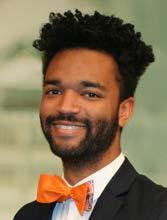
Additionally, Spencer is a member of the American Institute of Certificated Public Accountants (AICPA) and National Association of Black Accountants (NABA). While attending Trulaske, Spencer was a member of the Vasey Academy class of 2011. He served as a student member of the Vasey Academy Advisory Board from 2013-15. Currently, he serves as a member of the Recent Alumni Advisory Board.
Spencer has a personal passion to recruit students and help students make a future for themselves. He volunteers for recruiting events representing Ernst and Young at different on a local and national levels. Spencer has also participated as an event speaker for the Mathews Dickey “Maleness to Manhood” annual event where he would speak to high school students about a career in accounting and the opportunities that come along with a degree in accounting.
Spencer currently resides in St. Louis.
2021 Alumni of the Year Award
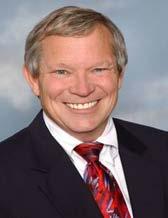
BS BA ’78, University of Missouri COO
CBIZ MHM,
Rick started with CBIZ MHM, LLC in 1978, and was recently promoted to Chief Operating Officer. Prior to this promotion, Rick was President of CBIZ MHM, LLC – Kansas City, and responsible for offices in St. Louis, Topeka, Wichita and Tulsa. Rick’s current responsibilities at a corporate level include business development, marketing, strategic planning, national training and organizational efficiency.
Throughout Rick’s career he was the Kansas City and Midwest Regional Attest Leader, and for many years consulted with clients on a variety of topics, including acquisitions, strategic planning, succession planning and improving profitability. His clients included not-for-profit organizations, construction companies, manufacturing and distribution companies.
2022 Alumni Citation of Merit
BS Acc ’82, University of Missouri Business Development/Relationship Partner
Armanino LLP
Chris Menz is a super-connector of people and businesses and serves as business development/relationship partner in the St. Louis office of Armanino LLP, a top-20 accounting and consulting firm. He currently leads Armanino’s Midwest expansion, with offices in St. Louis and Chicago and the possibility of more to come.
With 40 years of experience in the accounting profession, Menz is an expert in business development, service delivery, project management and staff development. He serves as the client relationship partner with many of the firm’s larger clients, and maximizes relationships based on his experience purchasing, selling, managing and delivering professional services.
Menz began his career at KPMG, where he provided audit services to middle-market companies before moving into an in-house CFO role with a client. He is a member of the American Institute of Certified Public Accountants (AICPA) and is a licensed CPA in Missouri.
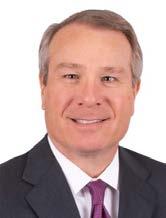
A native of Decatur, Illinois, Menz attended Mizzou on a golf scholarship and is greatly appreciative of the relationships he built and the experiences gained while a student. He and his wife, Terri, as well as their four adult children, reside in the St. Louis metro area. Menz and his wife are raising their eight-year-old grandson, who keeps them young.
2022 Alumni Citation of Merit BS Acc ’81, University of Missouri Controller
BECS Technology, Inc.
Janine Orf is controller of BECS Technology, Inc., an electronics manufacturer in the St. Louis area.
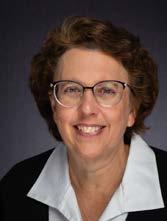
Before joining BECS, she served as vice president of investor relations at Patriot Coal Corporation, and previously led the investor relations function at two other
public companies, TALX Corporation and MEMC Electronic Materials, Inc. During her tenure at these companies, she also headed the internal audit department, prepared SEC filings, implemented the Sarbanes-Oxley Act, established a shared services organization and led the general accounting function. Orf started her career at Deloitte, serving manufacturing, utilities and nonprofit clients for eight years.
Orf has been actively involved in professional organizations during her career, serving as an officer and a board member of the St. Louis chapters of the National Investor Relations Institute and the Institute of Internal Auditors. Currently, she serves as treasurer of the Boys & Girls Clubs of St. Charles County and volunteers with St. Louis nonprofit Sweet Babies.
Orf graduated summa cum laude from Mizzou and is a member of the MU School of Accountancy Advisory Board and the Griffiths Leadership Society.
Orf and her husband, Geoff, have two adult children, Andy and Ginny; a daughter-in-law Brooke; and a grandchild due in June.
2022 Alumni Citation of Merit BS Acc ’90, University of Missouri Chief Financial Officer Walsworth
Jeff Vogel is the chief financial officer for Walsworth, a privately held company that ranks among the largest domestic printing enterprises. He plays a critical role in managing the financial and business affairs for both the company and the ownership family. His leadership in executing an opportunistic and fiscally prudent acquisition strategy has been a key factor to Walsworth’s continued growth and success.
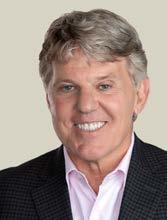

After graduating from Mizzou, where he was a Curator’s Scholar, Vogel accepted a position with Arthur Andersen, then one of the largest professional service firms. Five years later, he joined public accounting firm Williams Keepers. He later became chief financial officer for ABC Laboratories, an agrichemical and pharmaceutical development firm in Columbia. After helping the company secure private equity funding, he founded Financial Management Solutions, a boutique consulting firm that provided financial management expertise to a middlemarket clientele in Mid-Missouri, then joined Walsworth.
Throughout his career, Vogel has been actively involved
in civic and professional organizations such as the United Way, Boys and Girls Club, YMCA, Missouri Chamber of Commerce, Missouri Regional Bank and the Brookfield R-III Board of Education. He also has extensive service to Mizzou: he is currently president-elect of the Mizzou Alumni Association, and is a member of the university’s Jefferson Club, the college’s Herbert J. Davenport Society and the School of Accountancy Advisory Board. In recognition of his community engagement, he has been named to Columbia’s inaugural class of “40 Under 40” and was selected as a finalist for Columbia’s Volunteer Hero Award.
Vogel says he is most proud of his role as husband and father. He and his wife of more than 30 years, Julie, reside in Brookfield, Missouri. His son, Tyler, is also employed with Walsworth and his daughter, Emily, is a graduate of Mizzou’s Sinclair School of Nursing and is employed with MU Health Care.
2022 Trulaske Recent Alumni Achievement Award
BS Acc/M Acc ’09, University of Missouri
Assistant Vice President and Controller University of Missouri System
Eric Vogelweid serves as assistant vice president and controller of the University of Missouri System. He is responsible for the accounting operations of the system, including issuing internal and external financial statements, maintaining a comprehensive system of internal control to mitigate risk, coordinating external audit related activities across the system and ensuring that reported results comply with generally accepted accounting principles.
Prior to joining the system in 2013, Vogelweid worked for Boone Hospital Center as the manager of Strategic Planning & Physician Services, where he coordinated the development of the hospital’s strategic plan and managed the hospital’s acquisition of several physician practices. Before joining Boone Hospital, he worked for PricewaterhouseCoopers, LLP, as an auditor, spending a significant portion of his time on the University of Missouri.
Jean Whitley
2022 Trulaske Recent Alumni Achievement Award
BS Acc/M Acc ’17, University of Missouri
FSO Assurance Senior EY, LLP
Jean Whitley was born and raised in Kansas City, Missouri. He graduated from Raytown South High School as one of 10 valedictorians. From there, he studied accounting at the University of Missouri.
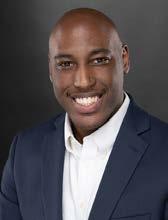
Throughout his time at Mizzou, Whitley was involved in Vasey Academy, the Trulaske College of Business Ambassador Program, Business Week, Mizzou Alternative Breaks, Mizzou Forte and Community 360. Through his involvement with Vasey Academy, he was introduced to a recruiter from EY, made an impression and was offered an internship for three consecutive summers. The internships led to a full-time offer post-graduation with the company. Whitley has been with EY as an auditor for five years within its financial services sector at the Kansas City office. He has utilized his time with the company to learn, grow, give back and pursue his various passions.
Whitley currently sits on the Vasey Academy Advisory Board within the Trulaske College of Business as its director of communications and serves as a mentor to Vasey Scholars. He spends his free time singing, playing instruments, cooking and traveling. Whitley says he is honored to be a recipient of the Recent Alumni Achievement Award and will continue to grow more tiger stripes.
Vogelweid graduated from Trulaske in 2009 and received the Federation of Schools of Accountancy Award as the master of accountancy program’s top graduate. He is a licensed Certified Public Accountant in Missouri.
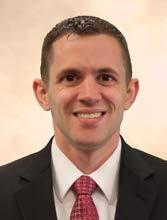



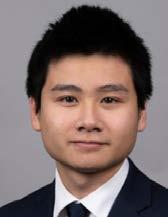
The shift caused by the pandemic provided me with an insightful experience. Both firms and universities found creative and flexible solutions to meet the needs of everyone. Serving as the President of Beta Alpha Psi gave me the opportunity to hear conversations between firms and students about what the future might look like. I remember during one of our meetings, KPMG hosted a poll to see how students felt about the future work environment. It surprised me to see that, like myself, many students were excited for a return to in-person especially for upcoming internships. Some of the reasons they cited included opportunities to network naturally as well as a more engaged learning experience. My role also gave me plenty of opportunities to hear from my peers at a more personal level. In one of these conversations, a peer shared with me that she was planning on turning down an internship offer with PwC since her spouse was currently based in a different location. I was ecstatic to share that I’d recently heard PwC was now offering fully remote work opportunities which included interns. It was then great to see the look of relief on her face and amazing to see how the world was changing. This was one of many moments where I realized the lasting
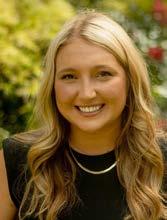
While in my second semester of being in the accounting program, the University of Missouri moved to a remote learning setting due to the COVID-19 pandemic. Anyone who’s been through the Accountancy program at the University knows that the first year is definitely the most difficult. So adjusting to the rigor of the Accountancy program on top of adjusting to unknowns brought on with online learning and the pandemic was not an easy task. However, the School of Accountancy made the situation as seamless as possible. Teachers were extremely accommodating on deadlines, class situations, family situations and tried to make remote learning as easy as possible. I was extremely thankful for the flexibility shown by the School of Accountancy professors during this time. I can confidently say that now going through the CPA exam process, I still felt
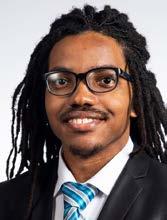
benefits and changes that the pandemic was going to leave on both the professional and academic world. I’m excited to see how the world continues to evolve as we work through this changing environment.
The initial completely online format the University of Missouri switched to was difficult to handle. I no longer had a daily routine that was enforced by live lectures and classrooms, so I had to enforce it myself. It felt overwhelming at times. When the 2020-2021 school year started, I was able to carve out time to take my asynchronous classes like I would in the time before the pandemic by setting up at a desk, turning on my camera, and participating in class. I also took better control of my physical and mental health while either in lockdown or quarantine. A few amazing teachers held synchronous or in-person classes when they were able to. This was a great for not only keeping students on track with their studies, but I think it helped a lot of students mentally when dealing with this pandemic. It made things feel normal, and I, along with other students, appreciate the teachers who were able to adapt so quickly and effectively.
like I was extremely familiar with the material that I learned during my online semester. Even during the unusual times that we were all experiencing, the professors made it easy to learn and connect with other students.
During this same time, I was going through the internship interview process with many firms. I can also echo the same type of accommodations were made for us to make the transition as easy as possible. An imperative part of the interview process is getting to know the people that work at the firms and building relationships with potential future coworkers. The firms made sure to put on many virtual events that had networking built in each month to connect us all. I found these events to be something I was looking forward to each month to take a mental break from my classwork. Despite going through the process virtually, I still feel like I was able to develop strong relationships with my coworkers through internships and the interview processes.
The National Association of State Boards of Accountancy publishes CPA pass rates for varied sizes of schools. NASBA’s data is useful, but it only measures single-section pass rates.
It does not measure how well students progress toward completing all four parts needed to become a CPA. In seeking a better metric to evaluate how well collegiate accounting programs prepare students to pass all four parts of the CPA exam, we created the CPA Success Index in 2020. We based the index on the number of sections candidates passed on the first attempt in the preceding 12 months. We gross that value up to 18 months using the school’s average firsttime pass rate, and then divide it by the total number of sections, four.
In 2020, we examined most recent available data (2018) for the 248 collegiate accounting programs with greater than 60 candidates that NASBA defines as “large.” We found that candidates in that group passed an average of 1.16 sections per year on the first attempt. Thus, the average candidate from the nation’s largest accounting programs completed just over one quarter of the exam on the first try in a year’s time, a first-time completion rate that is far below the average of 2.67 parts per year necessary to pass the entire exam successfully within 18 months and become a CPA. We ranked the top 10 large accounting programs by success indices and looked closer at their defining characteristics. We concluded that extra graduate coursework and formalized CPA review lead to higher CPA success scores.
For this testing window, Truman State University, a medium-sized program, is ranked number one overall, with an index of 1.000. Truman State’s 37 candidates passed 99 sections during the calendar year, or an average of 2.67 sections per candidate. When the annual pass rate is adjusted to reflect the 18-month testing window, Truman State’s success index is 1.000, indicating that the university’s candidates can be expected to pass all four sections of the CPA exam within the 18-month testing window. A full list of the top 10 is below.
On average, students across all universities only passed one section of the CPA Exam on the first try in 2019, which results in an average CPA success index of .397 (median of .375), a far cry from passing all four parts necessary to become a CPA.
To be consistent with NASBA’s annual ranking of the top 40 universities on the single-part pass rate, we list the top 40 schools for CPA success in the table for all programs with greater than 20 candidates and split by program size, medium and large.


Mizzou has always had a special place in my heart because I have been going to Mizzou football and basketball games since before I could walk. Just about everyone in my family has gone to school at Mizzou and I was happy to carry on the tradition. It was a great coincidence
Young Consultant II, Transaction Advisory Armanino
that Mizzou’s Trulaske College of Business touts one of the highest ranking accounting programs in the nation. Columbia, Missouri is a wonderful place to call home for several years. In addition, COMO is close enough to Kansas City that I was able to see my family for countless gamedays and holidays.
Regarding Mizzou’s accounting program and the CPA exam, I deeply appreciate the foundational knowledge my classes created. Further, Professor Kristen M. Hockman is an excellent steward for students undertaking the CPA. Last but not least, Becker has created a robust program for studying each section of the exam. I have told just about anyone that will listen that I am not particularly smart, I just work hard. That certainly was the case for the CPA and qualifying for the Elijah Watt Sells award. My older brother, Trevor Young, earned the accolade a couple years ago and I needed to match his accomplishment to avoid being the dumb one in the family. Not only that, but it was
an “aim small, miss small” kind of thing. I knew that by dedicating the time and effort into trying to average over 95.5 across the four sections, I would at the very least have a great chance to pass each section on the first attempt. I know accounting may not always be the most exciting topic to study, but if you can learn to enjoy the process, you’ll see incredible dividends be paid out (although who knows, perhaps I just gave myself Stockholm Syndrome with studying). Studying for anything can be a lot like fishing: it is rare to see your efforts materialize into success right away. However, if you enjoy the process rather than the product, you’ll have vastly superior odds in achieving the end product because you don’t mind investing the time and effort.
On the topic of fishing, I’d like to close with an account ing joke. Why do accountants like doing the taxes for fishermen? …because they already netted their income!



In September 2021, we welcomed 176 new admits to our 150-hour program. The average GPA of this outstanding class was 3.695. Students joined the program looking forward to beginning their careers across the country in the accounting profession.
On August 27, 2021 Randy Oberdiek (Partner-BKD) was the keynote speaker at the 2021 Accountancy Admit Class Orientation Event. He gave great comments and advised on change, the audit function, role of technology, and potential breadth of accounting professional involvement.

The next month, the School of Accountancy hosted a New Admit Class Ice Cream Social. It was a great gathering and another chance for the new class to get to know each other, and to also network with accounting professors and recruiters from across the state and country.





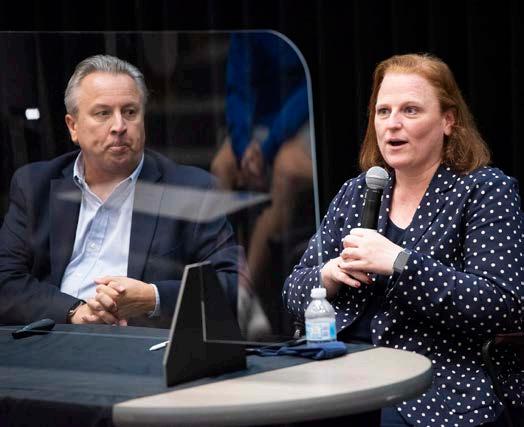
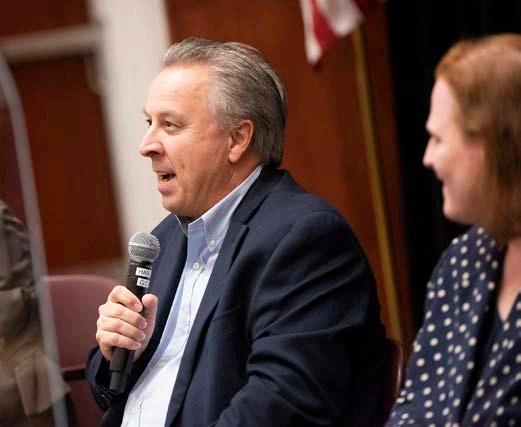
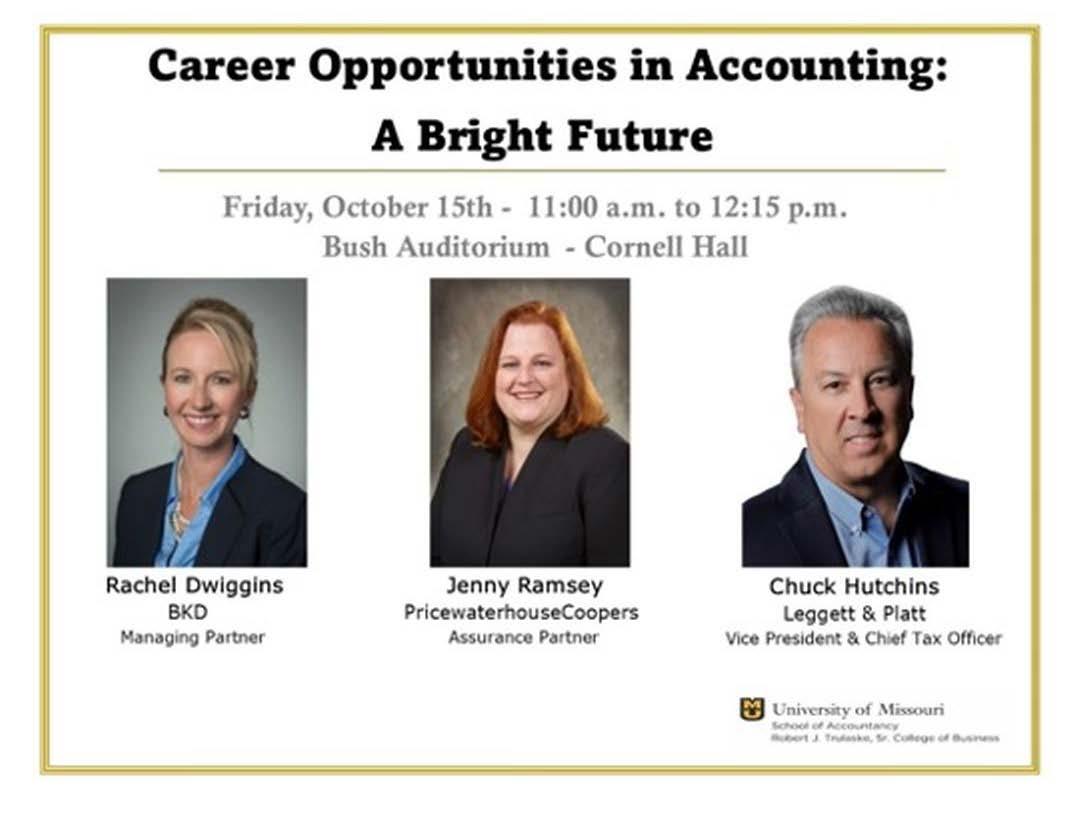
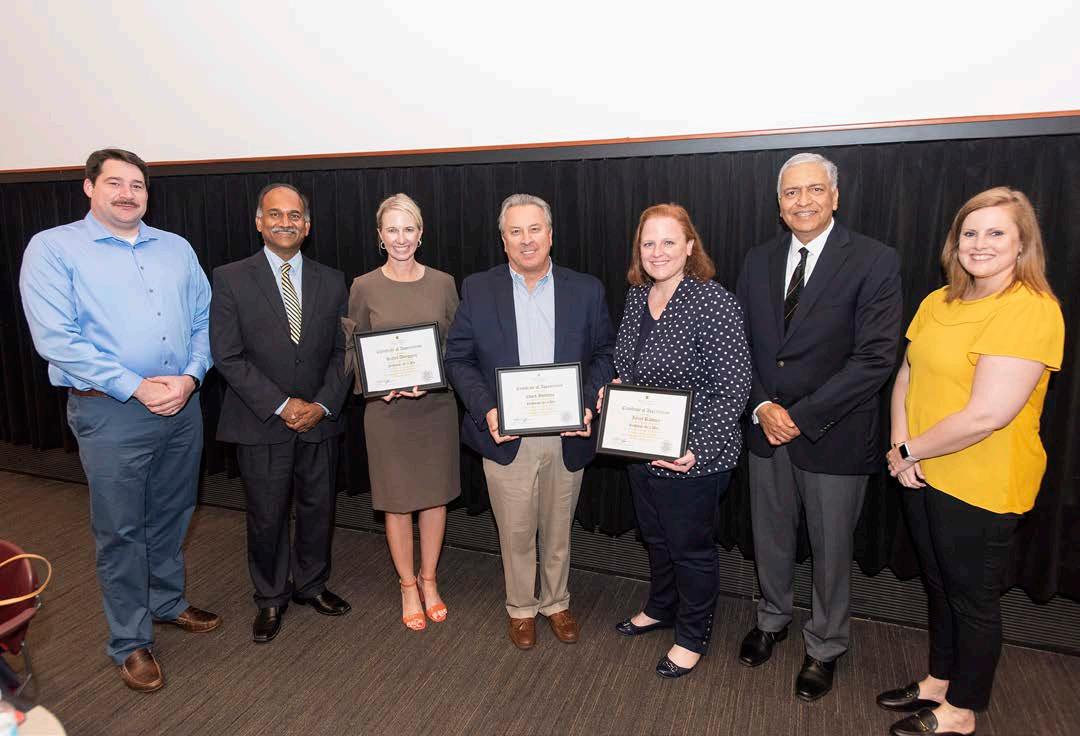
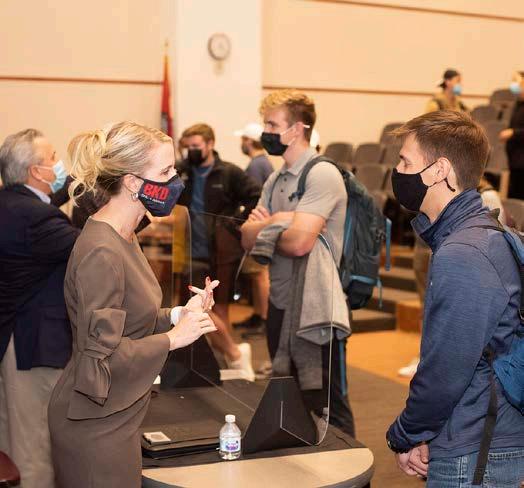
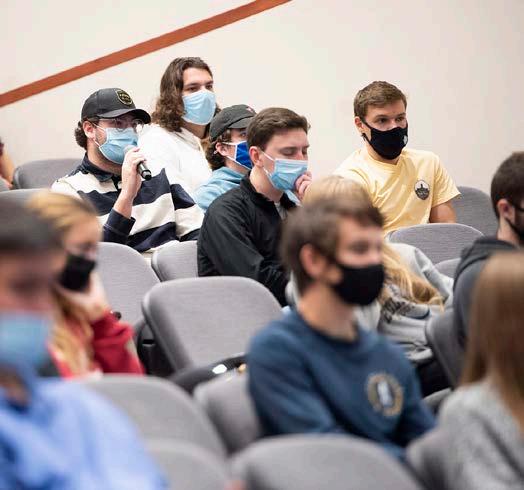
The School of Accountancy hosted the Women’s Leadership Forum on Friday, November 5, 2021. Kelley Frink, Chief Financial Officer with Veterans United Home Loans addressed issues pertinent to women’s


advancement in accounting and business. The session was very informative and highly engaging with several practical tips for career management, opportunities, and advancement.




On April 26, 2022, a banquet was held at the Hampton Inn & Suites for members of the 2022 graduating class of the 150-Hour program to celebrate their graduation and to commemorate their experience at MU. The banquet was attended by faculty and staff, and the keynote speaker was Andy Miller (BSBA-Accountancy, 1978). Mr. Miller

conveyed a motivating message to the graduating students, gleaned from his extensive experience, leadership, and abiding ties to Mizzou. We are fortunate to have Andy as a friend of the School of Accountancy. Here are some of the wonderful memories from the event.







The American Institute of Certified Public Accountants has identified an increasing demand for CPAs. This presents the perfect opportunity for you. With a strong demand for accountants, the Online Master of Accountancy (MAcc) degree is the premier avenue to connect you to a high demand field. You can now access a highly ranked and competitive degree with the convenience and accessibility of

Robert
SCHOOL OF ACCOUNTANCY:
• Global access to a Top 15 ranked accountancy program (Top 3 when scaled by faculty size)
• Global access to Top 10 ranked faculty
• Opportunity to receive highquality instruction (with the same rigor and high expectations employers are seeking) without relocating
• Access to excellent courses, which help prepare you for the CPA exam
• Opportunities to attend professional development workshops to increase your proficiency in soft skills
• Our online programs received annual rankings for quality and affordability from groups like U.S. News and World Report, and affordablecollegesonline.org
Students can customize their course schedule to meet their personal and professional needs.
1 year completion:
• Fall Semester - 12 hours
• Spring Semester - 12 hours
• Summer Semester - 6 hours
2 year completion: Year One
• Fall Semester - 6 hours
• Spring Semester - 6 hours
• Summer Semester - 3 hours
Year Two
• Fall Semester - 6 hours
• Spring Semester - 6 hours
• Summer Semester - 3 hours
Minimum 3.0 GPA in the following courses:
Required Coursework (6 - 9 hours):
• Auditing Theory and Practice
• Accounting and Strategic Business Analysis
• Operations Management (or substitute)
Accounting Electives (12 - 18 hours):
• Taxation of Corporations and Shareholders
• Advanced Accounting
• Governmental Accounting and Budgeting
• Professional Accounting Internship
• International Accounting
• Internal Auditing
• Fraud Examination
• Advanced Audit
• Strategic Cost Analysis
Core Business Electives (6 - 9 hours):
• Different offerings each semester
Our Online Master of Accountancy program is fully online and works around your schedule, offering convenience as you grow personally and professionally.
Online Master of Accountancy Graduate Programs Office trulaskemasters@missouri.edu | onlinemacc.missouri.edu









Discussion on Corporate Social Responsibility and ESG (Environmental, Social & Governance) dimensions to performance, financial markets, and reporting!
A distinguished panel of Mizzou Business faculty in a great conversation – April 8, 2022




Leading CPA pass rate The average first-time pass rate on the Uniform CPA Examination is above 75 percent - impressive, as the average nationwide rate is below 50 percent.
500 students Approximate number of students in the program. Our small size helps foster a unique sense of community with students.

Scholarships Nearly $200,000 in scholarships are awarded by the School of Accountancy annually in addition to University of Missouri scholarships.
Internships Almost all students complete a professional accounting internship for academic credit. Above 75 percent result in full-time placement.
Jobs and Salary Above 95% placement rate for graduates with an average starting salary well above $50,000.
Though the program is geared towards public accounting, students also take positions with corporations, governmental agencies, non-profits, and start their own firms.
Today’s successful accountant needs a breadth of skills. CPAs are essential to good stewardship of a company’s goals and assets, understanding the dynamic marketplace and the bottom-line impact of major business decisions.
Accounting Student Organizations Association of Accountancy Students, Beta Alpha Psi, National Association of Black Accountants, NASBA-CPT
Specialization Track Graduate Certificate in Taxation and Assurance
Business Case Competitions Deloitte Audit & Tax Competitions, KPMG International Case Competition, PwC xACT and xTax Competitions, AICPA Case Competition
Speaker Series We bring in experts in accounting to share industry insight.
One of four academic units in the Robert J. Trulaske, Sr. College of Business, the School of Accountancy has its own accreditation from the AACSB, the national accrediting agency for collegiate business schools. Here are pride points about the School’s programs and faculty.
One of four academic units in the Robert J. Trulaske, Sr. College of Business, the School of Accountancy has its own accreditation from the AACSB, the national accrediting agency for collegiate business schools. Here are pride points about the School’s programs and faculty.
• Ranked 11th in the nation for master’s degree programs and Top 3 when scaled for faculty size (2019 Public Accounting Report)
• Ranked 11th in the nation for master’s degree programs and Top 3 when scaled for faculty size (2019 Public Accounting Report)
• Unique 150-hour integrated program culminates in students earning both BS and MAcc degrees
• Unique 150-hour integrated program culminates in students earning both BS and MAcc degrees
• High-quality students are admitted to the program at the start of the junior year
• High-quality students are admitted to the program at the start of the junior year

• Supports strong technology curriculum including data analytics, ERP and e-business through MU’s alliance with SAP

• Supports strong technology curriculum including data analytics, ERP and e-business through MU’s alliance with SAP
• Certification available in tax, assurance, and accounting data analytics.
• Certification available in tax, assurance, and accounting data analytics.
• Excellent performance on CPA exams including high score winners for the AICPA Elijah Watt Sells Award as
• Excellent performance on CPA exams including high score winners for the AICPA Elijah Watt Sells Award as
well as Top 5 pass rate in the nation for Q2 2017, ranked #2 of 521 accounting programs nationwide on CPA Exam Success Index (Accounting Today, February 2021)
well as Top 5 pass rate in the nation for Q2 2017, ranked #2 of 521 accounting programs nationwide on CPA Exam Success Index (Accounting Today, February 2021)
• Excellent job placement with more than 90 percent of students completing professional internships and more than 95 percent domestic students obtaining full-time positions upon graduation
• Excellent job placement with more than 90 percent of students completing professional internships and more than 95 percent domestic students obtaining full-time positions upon graduation
• The School’s faculty was ranked in the Top 10 nationally on scholarly research index for 2018, according to Academic Analytics
• The School’s faculty was ranked in the Top 10 nationally on scholarly research index for 2018, according to Academic Analytics
• More than 40 articles have been published or accepted from 2016-2021 in prestigious research journals
• More than 40 articles have been published or accepted from 2016-2021 in prestigious research journals
• Our student teams regularly participate in and perform with high distinction in national and regional student case competitions hosted by accounting firms and other professional organizations
• Our student teams regularly participate in and perform with high distinction in national and regional student case competitions hosted by accounting firms and other professional organizations PhD PROGRAM
• Ranked in the Top 25 nationally (2019 Public Accounting Report)
• Ranked in the Top 25 nationally (2019 Public Accounting Report)
• This personalized, high-quality program emphasizes interaction with the faculty. Faculty-student collaborations have resulted in articles in leading academic journals.
• This personalized, high-quality program emphasizes interaction with the faculty. Faculty-student collaborations have resulted in articles in leading academic journals.
• Multiple honors for teaching excellence, including multiple William T. Kemper Awards for Teaching Excellence, the 2007 Governor’s Award, 2010 Provost’s Award, and the 2015 American Accounting Association (AAA) Cook Prize
• Multiple honors for teaching excellence, including multiple William T. Kemper Awards for Teaching Excellence, the 2007 Governor’s Award, 2010 Provost’s Award, and the 2015 American Accounting Association (AAA) Cook Prize
• Numerous research presentations at conferences and colloquia
• Numerous research presentations at conferences and colloquia
• Service on editorial boards of more than 10 academic journals
• Service as current or former officers, board members, chairs, and committee members in the AAA, AICPA, APLG, IMA, Missouri Society of CPAs and other organizations
• Service on editorial boards of more than 10 academic journals
• Service as current or former officers, board members, chairs, and committee members in the AAA, AICPA, APLG, IMA, Missouri Society of CPAs and other organizations
School of Accountancy | Robert J. Trulaske, Sr. College of Business | University of Missouri accountancy@missouri.edu | 573-882-4463 | accountancy.missouri.edu
School of Accountancy | Robert J. Trulaske, Sr. College of Business | University of Missouri accountancy@missouri.edu | 573-882-4463 | accountancy.missouri.edu

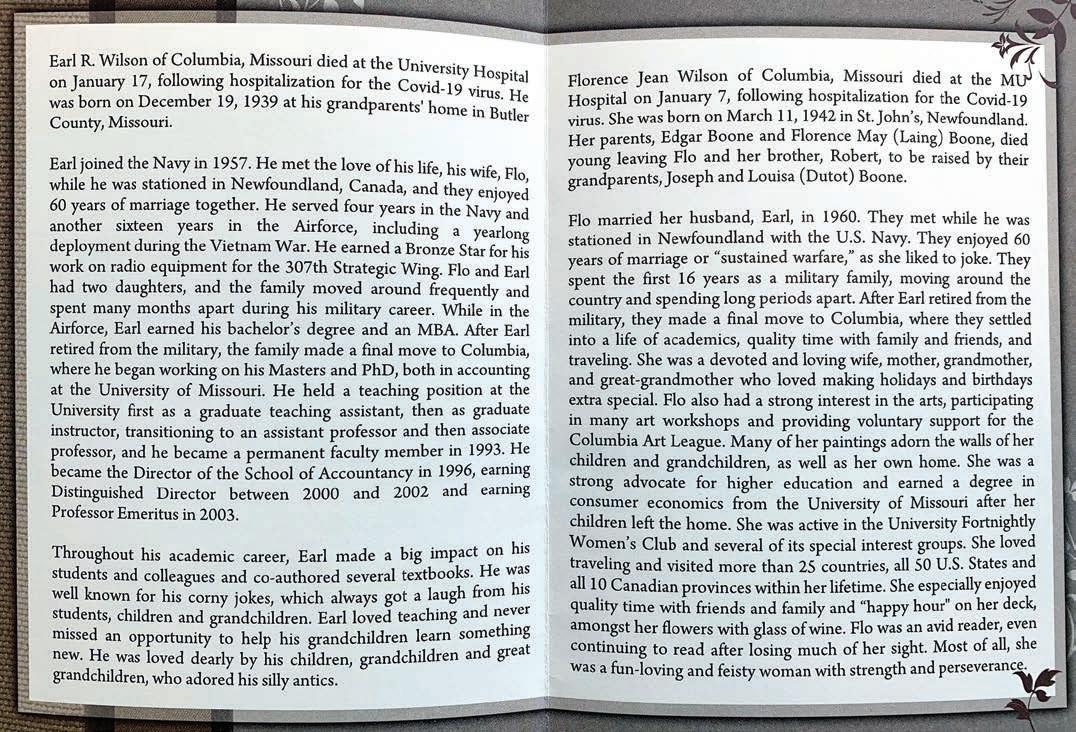
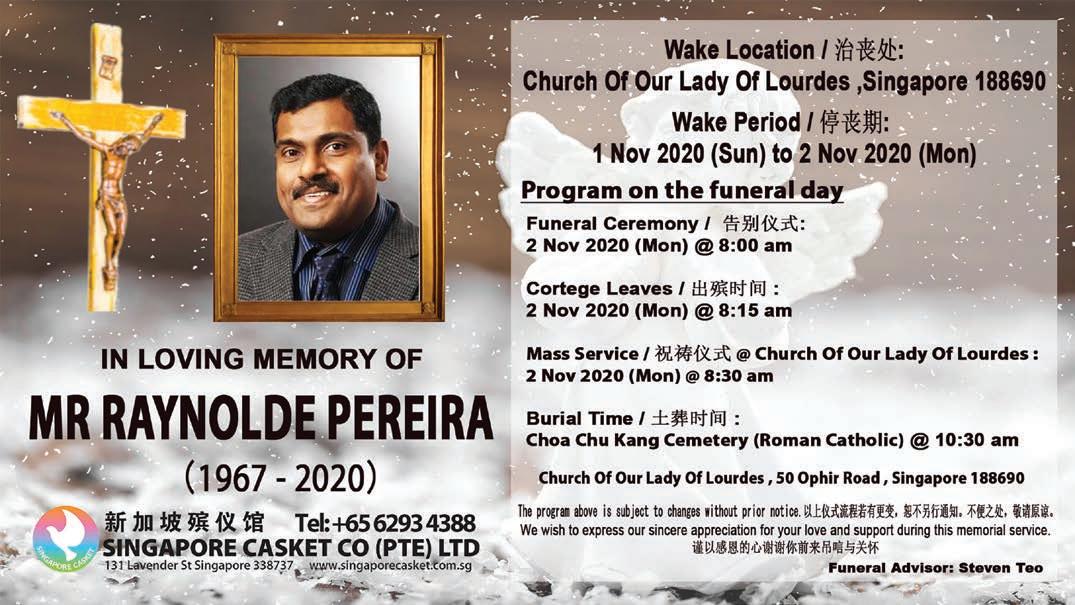
Since 2018, our School of Accountancy has enjoyed a strengthened partnership with KPMG through the KPMG Master of Accounting with Data Analytics (MADA) program. This program, which is a unique and innovative curriculum initiative that seeks to prepare accounting students for the digital marketplace, has provided an opportunity for students selected from across the nation to attend Mizzou’s graduate accountancy program with full tuition, KPMG internships and guaranteed job offers upon graduation.
In addition, in support of excellence in teaching, research and service, KPMG has funded two named faculty positions in our college: the KPMG/Joseph A. Silvoso Distinguished Professor (held by Ken Shaw) and the KPMG Teaching Scholar (held by Kari Gingrich). Recently, our partnership with KPMG has taken on another enhanced dimension. In furtherance of Mizzou’s
participation in the MADA program and in order to attract more students from underrepresented groups to the accounting profession, KPMG has made a gift of $500,000 to the School of Accountancy to provide scholarships for junior, senior and fifth year/Master of Accountancy students. Through this new partnership, we will have continued access to KPMG software/curricular resources and faculty training opportunities. Further, we will demonstrate our shared commitment to inclusion, diversity and equity within the accounting profession.
Trulaske sophomore students applying for admission to upper-level accountancy will be eligible for consideration for these scholarships. We plan to award these as early as the fall semester, with recipients known as MADA Scholars.
A donor’s investment in education will pay dividends for Mizzou and the Trulaske College of Business for years to come.
The donor, who chose to remain anonymous, made a $1.1 million gift to create the Vairam Arunachalam Distinguished Professor of Accountancy, University of Missouri President Mun Choi announced at an event Friday. The position holder must demonstrate commitment to teaching, service, citizenship and outreach to students with a preference to a non-tenure track professor. The inaugural position holder will be named in fall 2022.

“Our non-tenure track faculty are invaluable, and this new professor will uphold the renowned quality expected from Accountancy program,” Choi said. “We’re investing in our future as part of our MizzouForward initiative, and that includes giving our students every opportunity and resource they need to succeed. A centerpiece of those efforts is the recruitment and retention of world-class faculty.”
The professorship honors Arunachalam, the longtime director of the School of Accountancy in the Trulaske College of Business. His leadership has seen the program reach remarkable heights.
“Vairam made accountancy education his life’s work, and in his decades at Mizzou, he’s worked tirelessly as director of the Mizzou Accountancy program to ensure its status as one
of the top programs in the country,” Choi said.
Trulaske College of Business interim dean Chris Robert explained that this new professorship meshes perfectly with the vision for the future of the School of Accountancy and the college as a whole.
“This gift marks the continuation of a very special part nership between our college and this donor, ensuring that Trulaske continues to offer an outstanding, well-rounded, global business education – and that we can attract and retain the most talented faculty members to provide it,” he said.
The School of Accountancy has touched the lives of so many students, and with this gift, it will continue to do so for generations to come. Accountancy graduate student Jillian Rosenkranz explained just how much her time at Mizzou was enriched by her encounters with faculty and hopes for the same for future students.
“My accountancy professors were the reason for my success,” she said. “The passion for teaching they exuded was evident. They didn’t shy away from challenging us with rigorous material, but through it all, they provided us every resource we needed to succeed. This is when I realized that joining the accountancy program here at Mizzou is what would make the difference for my education.”
Story courtesy of Mizzou Alumni and Donor Communication and Marketing
David Boland, BS Acc ’90 of Dallas is chief knowledge officer at Ogletree Deakins.
Christopher S. Briggs, BS Acc ’96 of Kansas City, MO, is managing partner for PricewaterhouseCoopers.
Christopher Bub, BS Acc, M Acc ’02 of Grover, MO, is chief financial officer at Brinkmann Constructors.
DeAnna Cassat, BS Acc ’11 of Washington, MO, is vice president of finance and administration and chief financial officer at East Central College.
Kate Casso, BS Acc, M Acc ’03 of St. Louis is senior vice president and corporate controller at Centene Corp.
Carol A. DiRaimo, BS Acc ’83 of Lee’s Summit, MO, is a member of the board of directors for QDOBA Mexican Eats.
Renita Duncan, BS Acc, M Acc ’08 of Creve Coeur, MO, was named to St. Louis Business Journal’s 2021 class of 40 Under 40.
Michael Gardner, BS Acc, M Acc ’07, JD ’10 of St. Louis is CEO and president of Gardner Capital.
Ross Gordon, BS Acc, M Acc ’12 of Chesterfield, MO, is an assistant controller with Green Courte Partners, LLC.
Brian Henke, BS Acc ’97 of Kansas City, MO, is executive vice president for administration and chief financial officer at Kansas City Art Institute.
Gary T. Kacich, BS Acc ’87 of St. Louis is chief financial officer for Catholic Charities of St. Louis. Stacey Kamps, BS Acc ’95 of St. Louis is the CEO of Koch Development Co.
Angela Leininger, BS Acc, M Acc ’08 of Kansas City, MO, is a senior manager at BKD.
Bart Loethen, BS Acc ’86 of Chicago co-founded the Forge: Lemont Quarries Adventure Park.
June E. Pitchford, M Acc ’90 of Columbia, MO, retired after 30 years as the Boone County auditor.
Gregory Rottjakob, BS Acc ’87 of Chesterfield, MO, is principal and national leader of the state income and franchise tax practice at Ryan.
Frank H. Sanfilippo, BS Acc ’85 of Sunset Hills, MO, is chief financial officer for Greensfelder, Hemker & Gale P.C.
Daniel Schindler, BS Acc, M Acc ’11 of Fenton, MO, is a partner at Anders.
Ed Vandeven, BS Acc ’87 of St. Louis is chief financial officer for Gardner Capital.
Julie & Jeff Vogel, BS Acc ’90 became Traditions Circle Members
Kara (Sewing) Wilson ’08 was promoted to partner in PwC’s Des Moines office.
Inductees into the 2020 class of MU’s Intercollegiate Athletics Hall of Fame: Baseball player Mike Rogers BS Acc ’87 M Acc ’89
Clayton Voss, BS Acc, M Acc ’19 and Andrea Feldman Voss, BSN ’18 of Washington, MO - June 19, 2021
Though I am a proud Trulaske graduate, my Mizzou story doesn’t start with me. It was my father who laid the foundation of our family’s ties to the university — he was the first of our family to go to college, graduating from the School of Accountancy in 1966. In many ways, his success carved a path for my own.
He is but one of the many alumni who have led me to where I am today. Truthfully, the same can be said for so many of our Tigers. Not only are their paths a result of the work of so many who came before; they, in turn, are creating paths for the future. It’s my honor to serve as the President of Mizzou Alumni Association, and for a time, to share in some small part of that grand work. I want to thank Sabrina McDonnell, our immediate past president and fellow graduate of the Trulaske College of Business, for her leadership and guidance throughout this transition.
I encourage every one of us to reflect on our path, the people who led us forward, and what we can do to bring others along that path as well. And not simply in the individual sense, either — the work this university is doing has a calculable impact on our state and local economy, in addition to the lifesaving research that impacts people around the world. Everything we do to bring Mizzou forward is in service of a larger mission and a larger cause,
and if you’re seeking a way to contribute, membership in the Mizzou Alumni Association is a wonderful place to start.
From there, you can encourage high schoolers to choose our School of Accountancy with handwritten notes; connect with a Trulaske scholar through the Mizzou Mentoring program; volunteer to cheer on our graduates as they run through the Columns in May; provide internship and employment opportunities to our students; and most importantly, grow your connection with the alma mater that has made so much possible for so many of us. My time with the School of Accountancy Advisory Board and the MAA Board of Directors has deepened my connection to MU more than I ever thought possible. I hope you find a way to give back that is as meaningful to you.
Visit Mizzou.com to learn more about membership and join me in carving a path for others to follow.
M-I-Z!
Jeff Vogel, BS Acc ’90 President, Mizzou Alumni Association Member, School of Accountancy Advisory Board
Please take time to complete the Alumni Update form provided on this page. Alumni information we report depends greatly on feedback received from each alumnus regarding developments in his/her life and career. Also, give us ideas on how we might improve future School of Accountancy newsletters. If there is insufficient space on the form to make all of your comments, feel free to include an additional page(s) and extend your remarks. And, of course, any financial assistance you can provide will be very helpful and very much appreciated.
Name Home Address E-mail
Employer
Business Position/Title
Employer’s Address
News About You (recent promotions, professional attainments, etc.)
future articles (who or what would you like to read about?)
mizzou.us/accountancy-giving

• Yes, I would like to support the School of Accountancy Program.
I am enclosing $ /pledging an amount of • $10,000 • $5,000 • $2,500 • $1,000 • $500 • $100 • $50 • Other $_____
(Pledges, other than Jefferson Club or Davenport Society commitments, should be completed within 5 years.)
I would like my gift to be used to:
• provide for faculty development
• provide for technology
• provide for scholarships for qualified and deserving students
• provide general support for the School of Accountancy program
• other (please designate)
Checks should be made payable to the MU School of Accountancy and include an indication of the purpose for which the gift is intended.
Please return this form and/or your check to: Director School of Accountancy 303 Cornell Hall University of Missouri Columbia, MO 65211
Contributions may also be made online at http://www.giving.missouri.edu
an equal opportunity institution

Trulaske College of Business Vasey Academy 408 Cornell Hall Columbia, MO 65201
Trulaske School of Accountancy 408 Cornell Hall Columbia, MO 65211 RETURN
